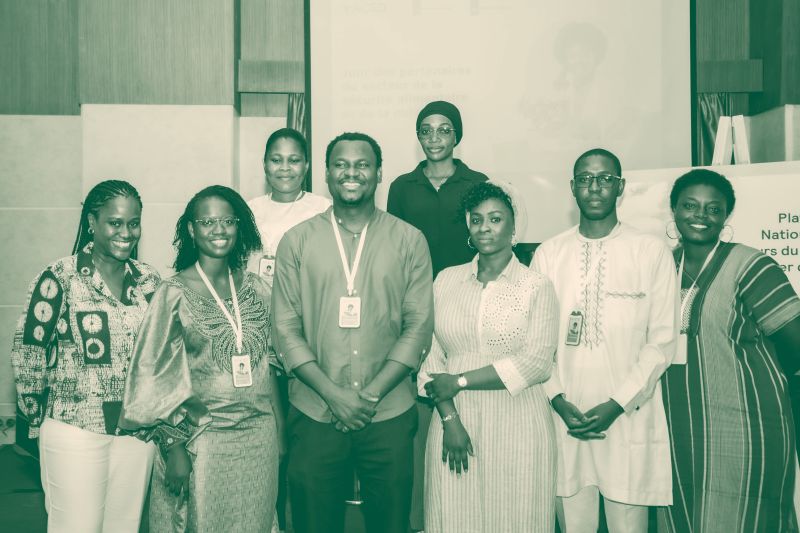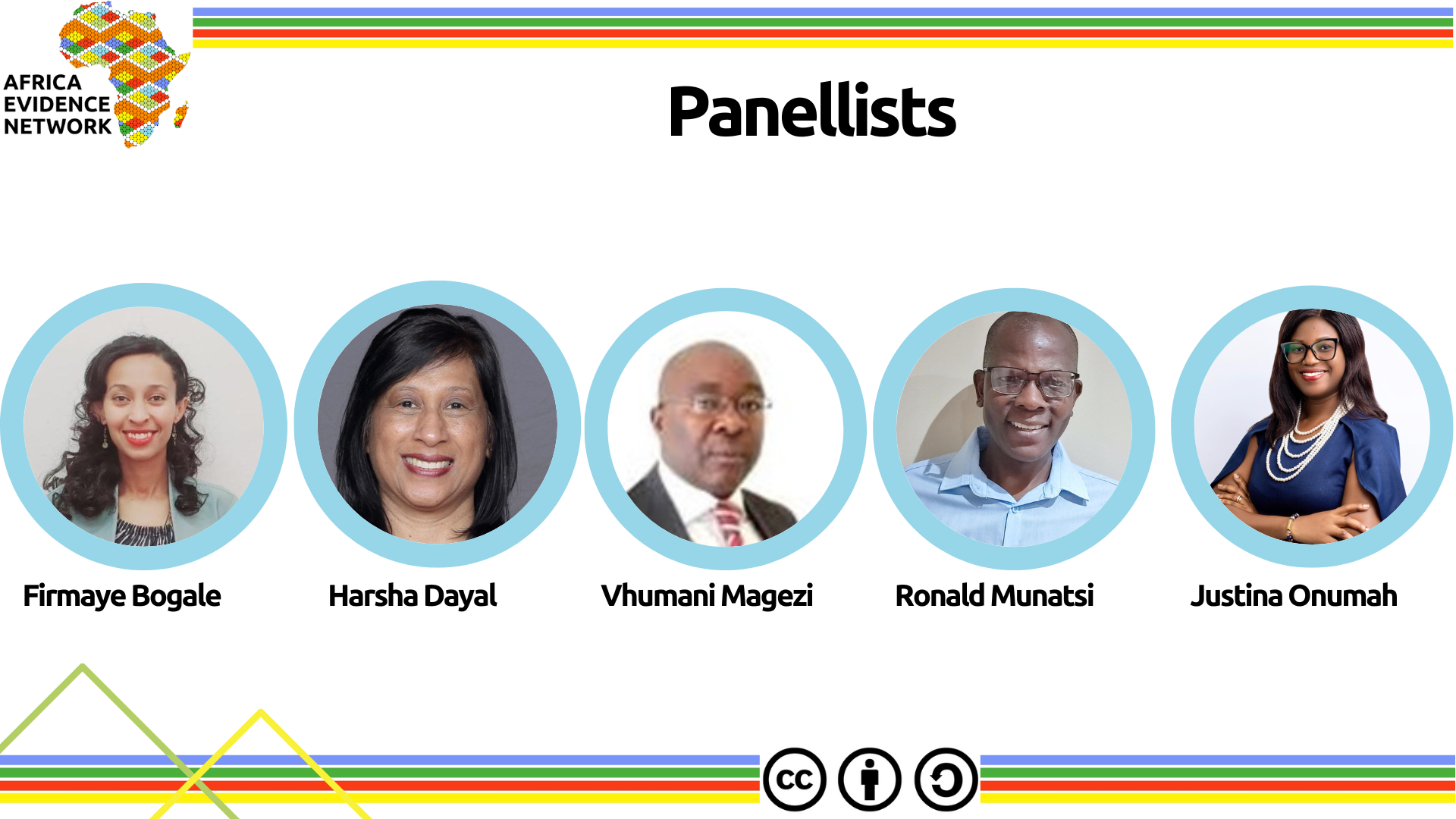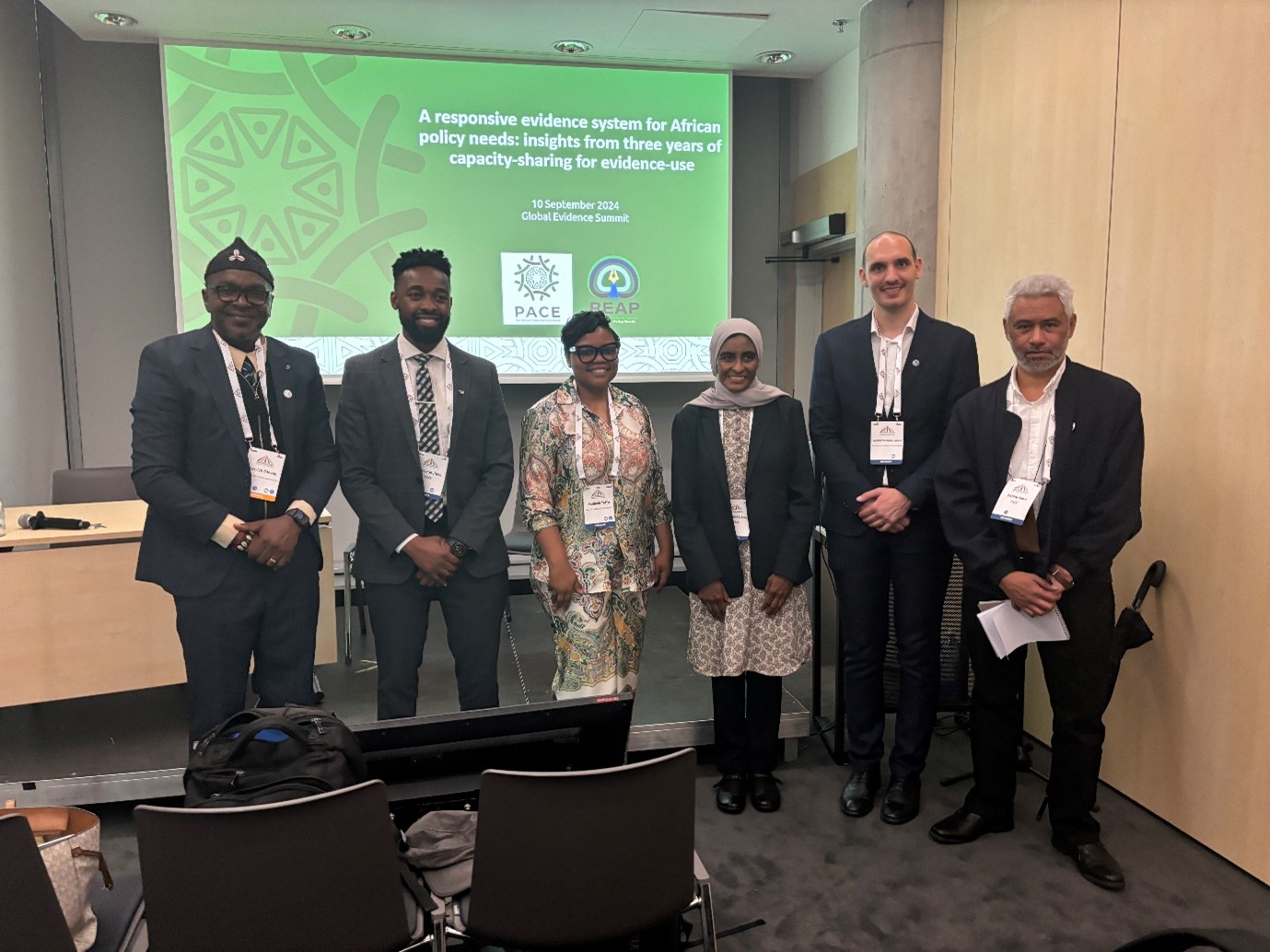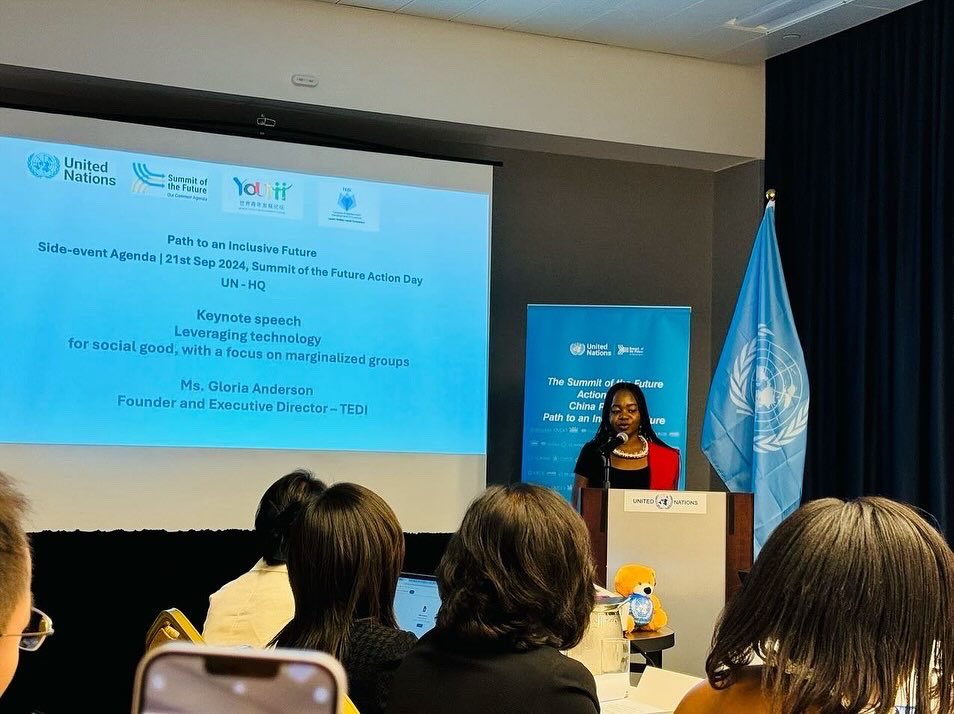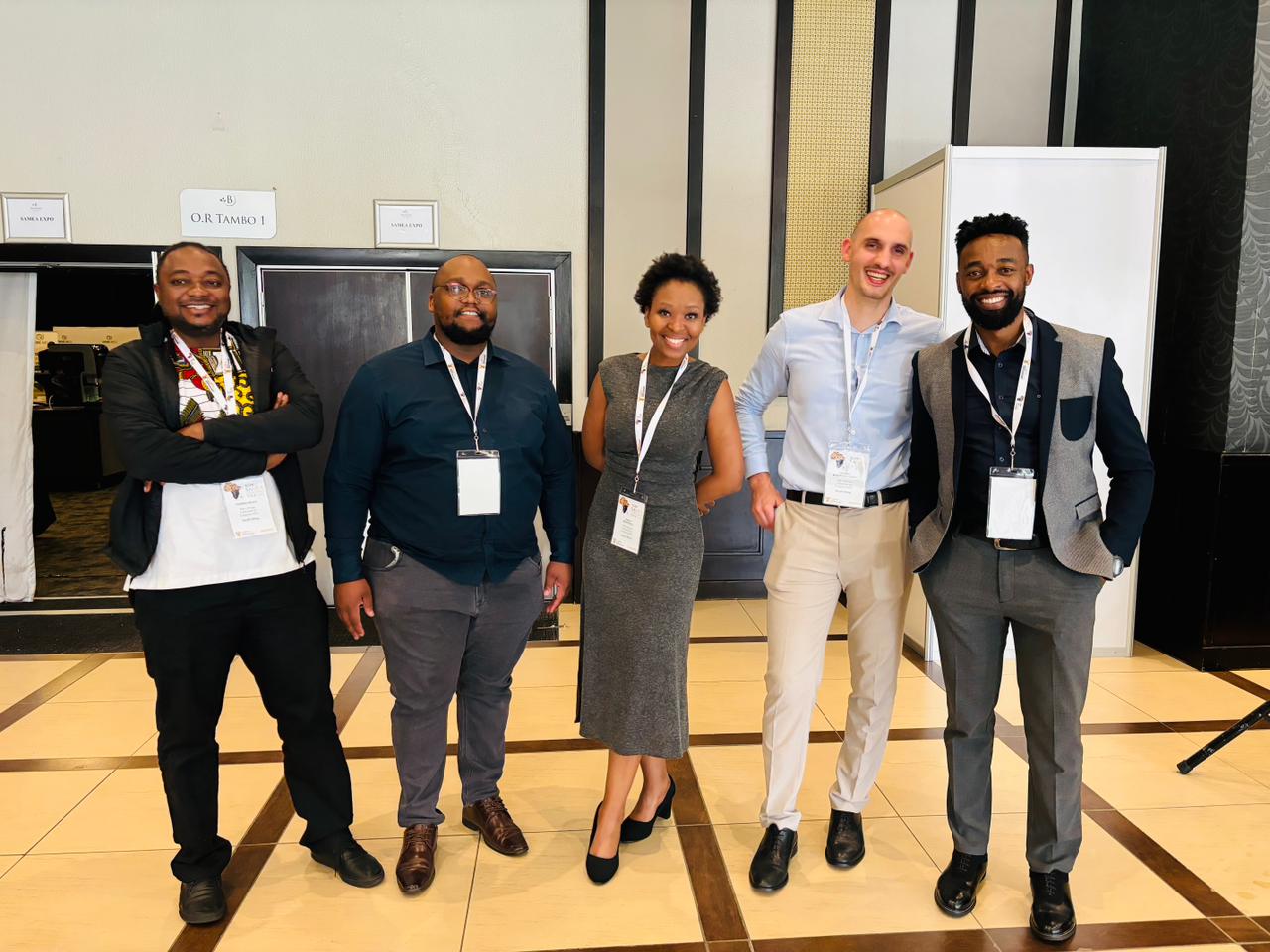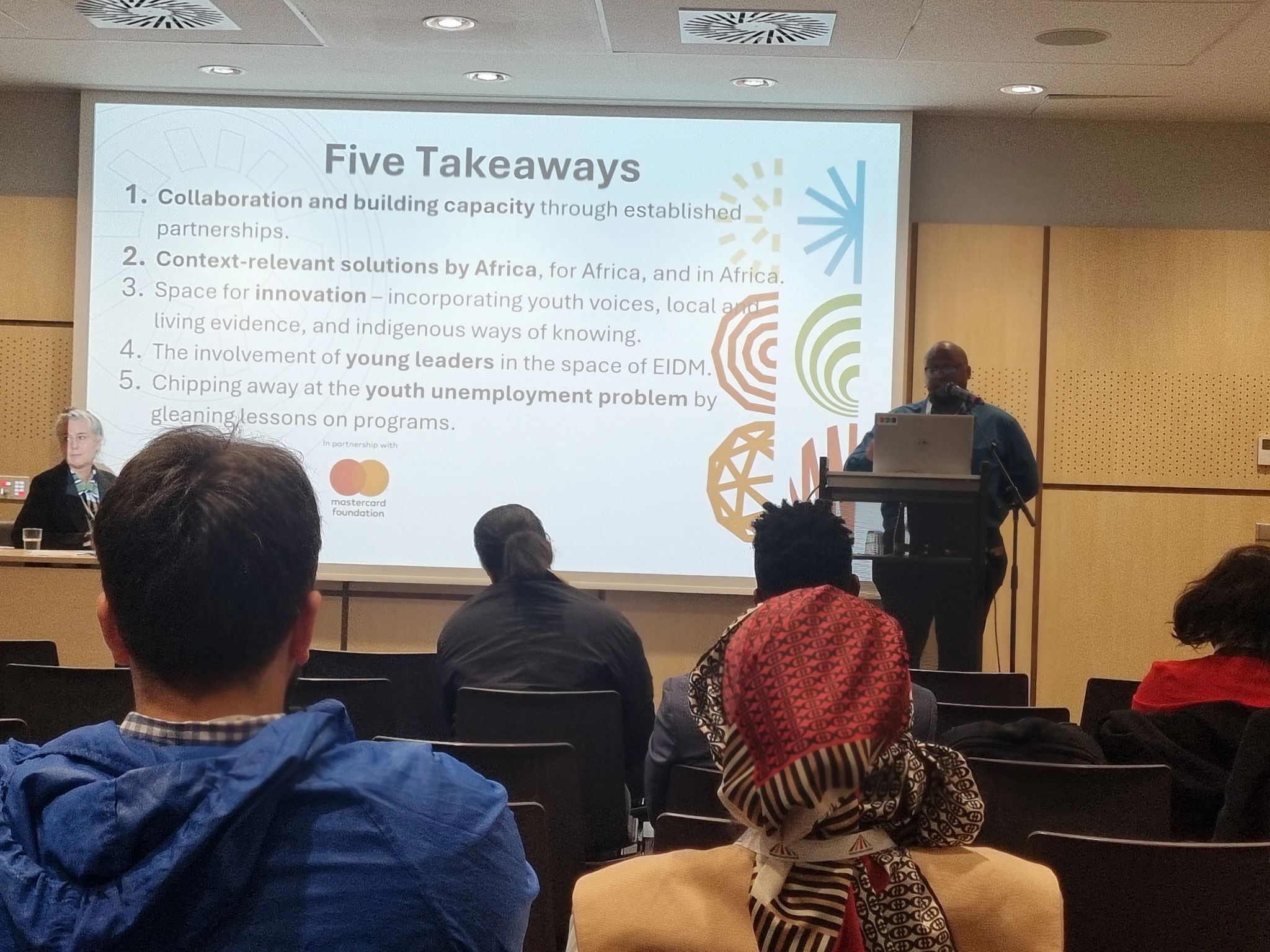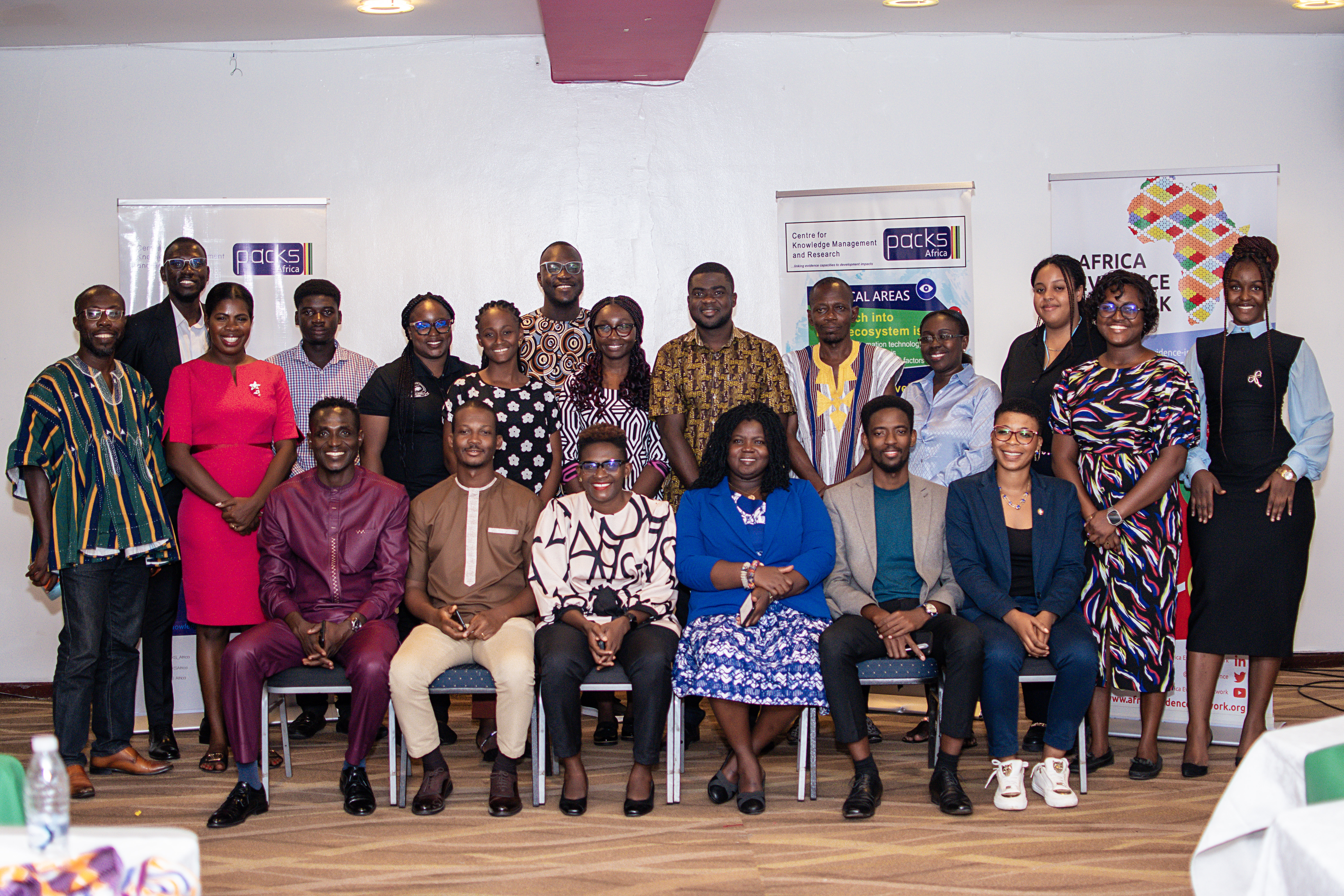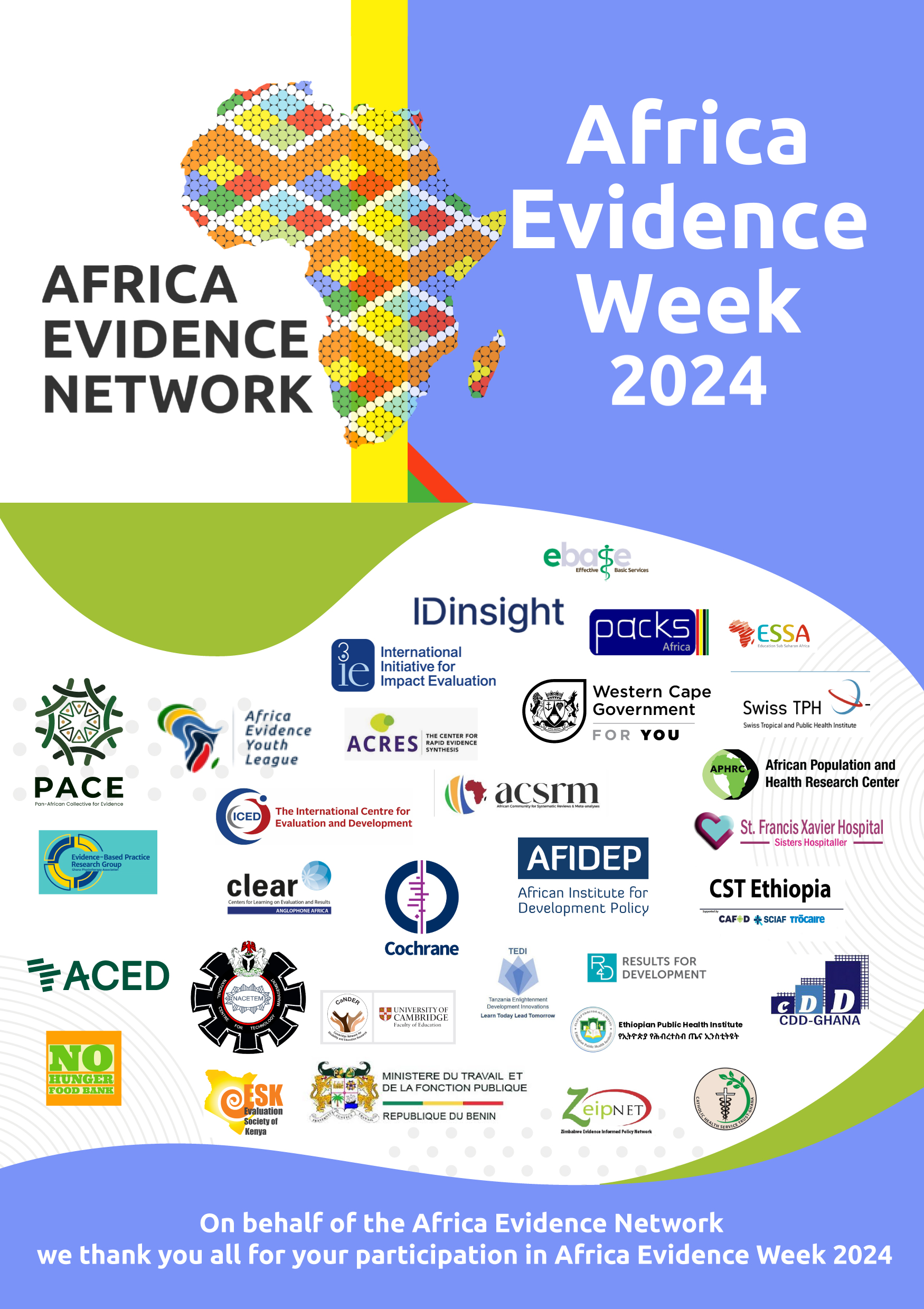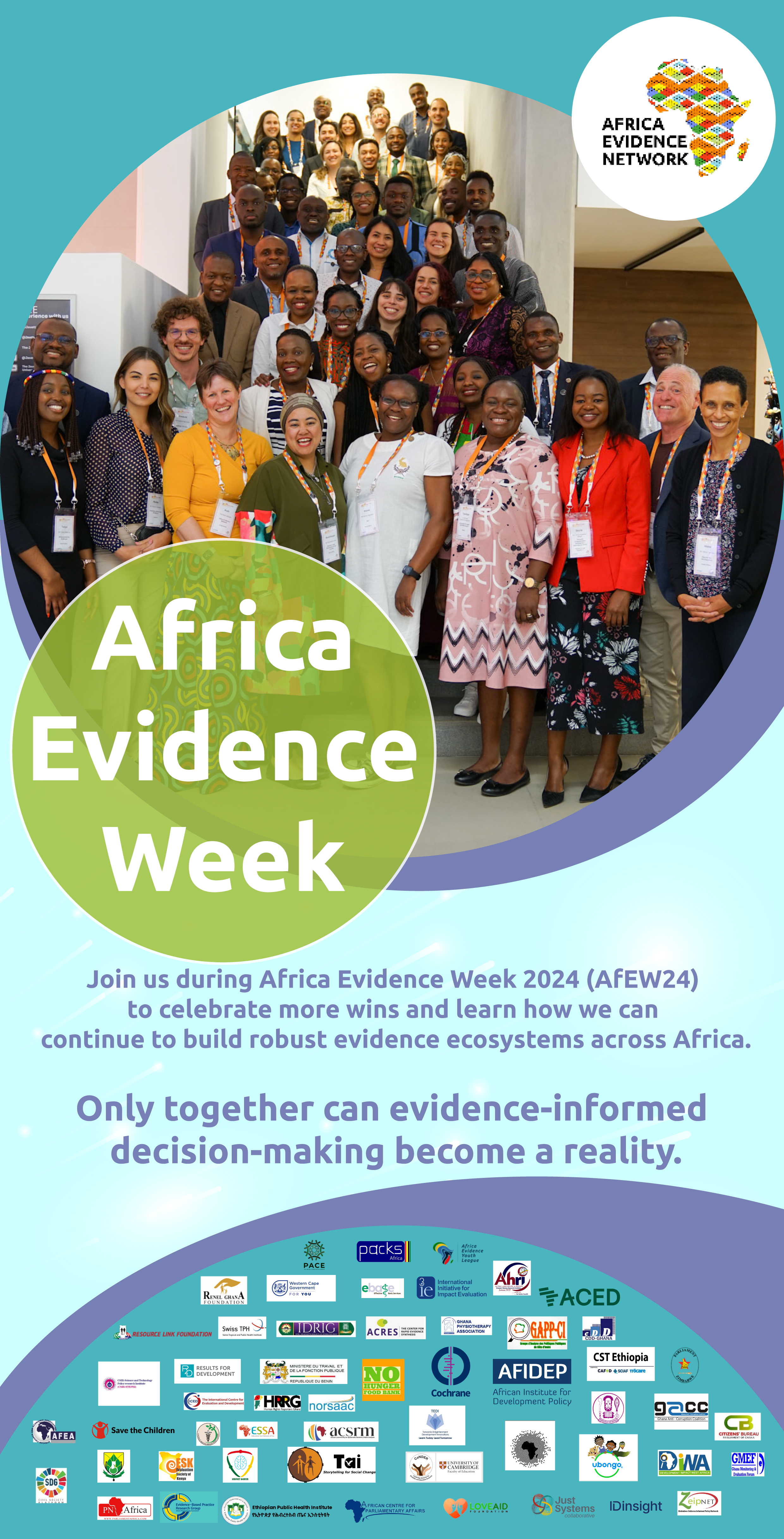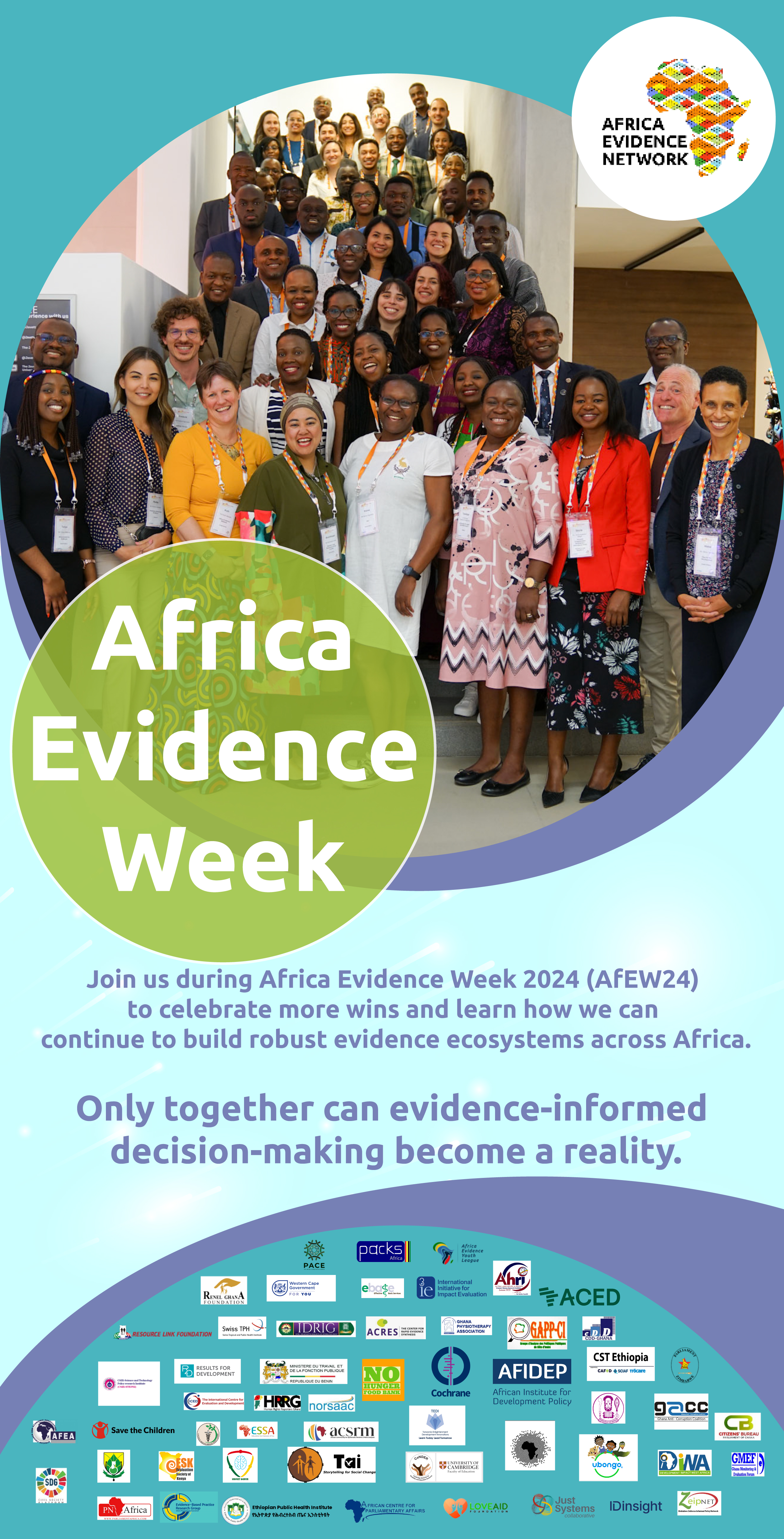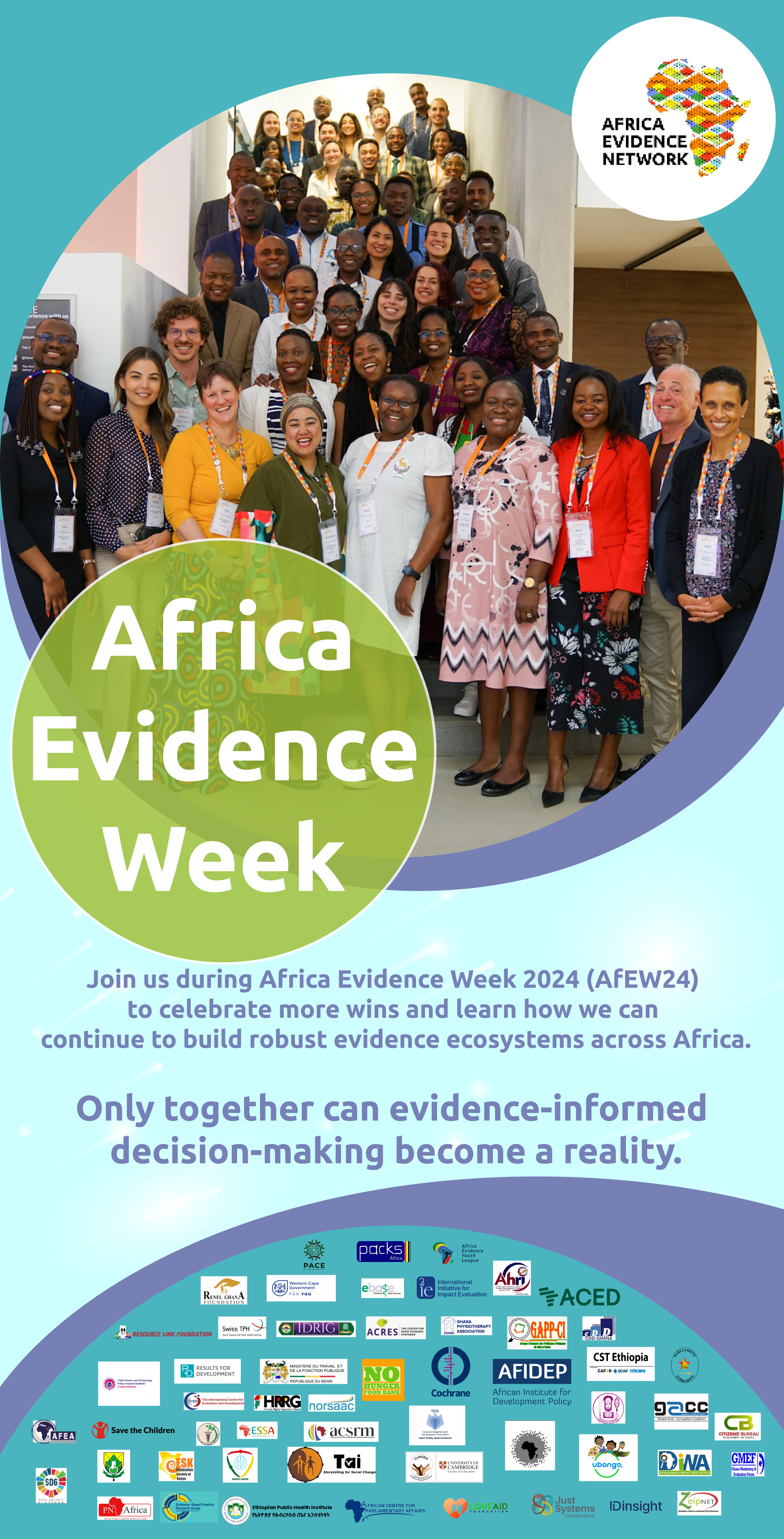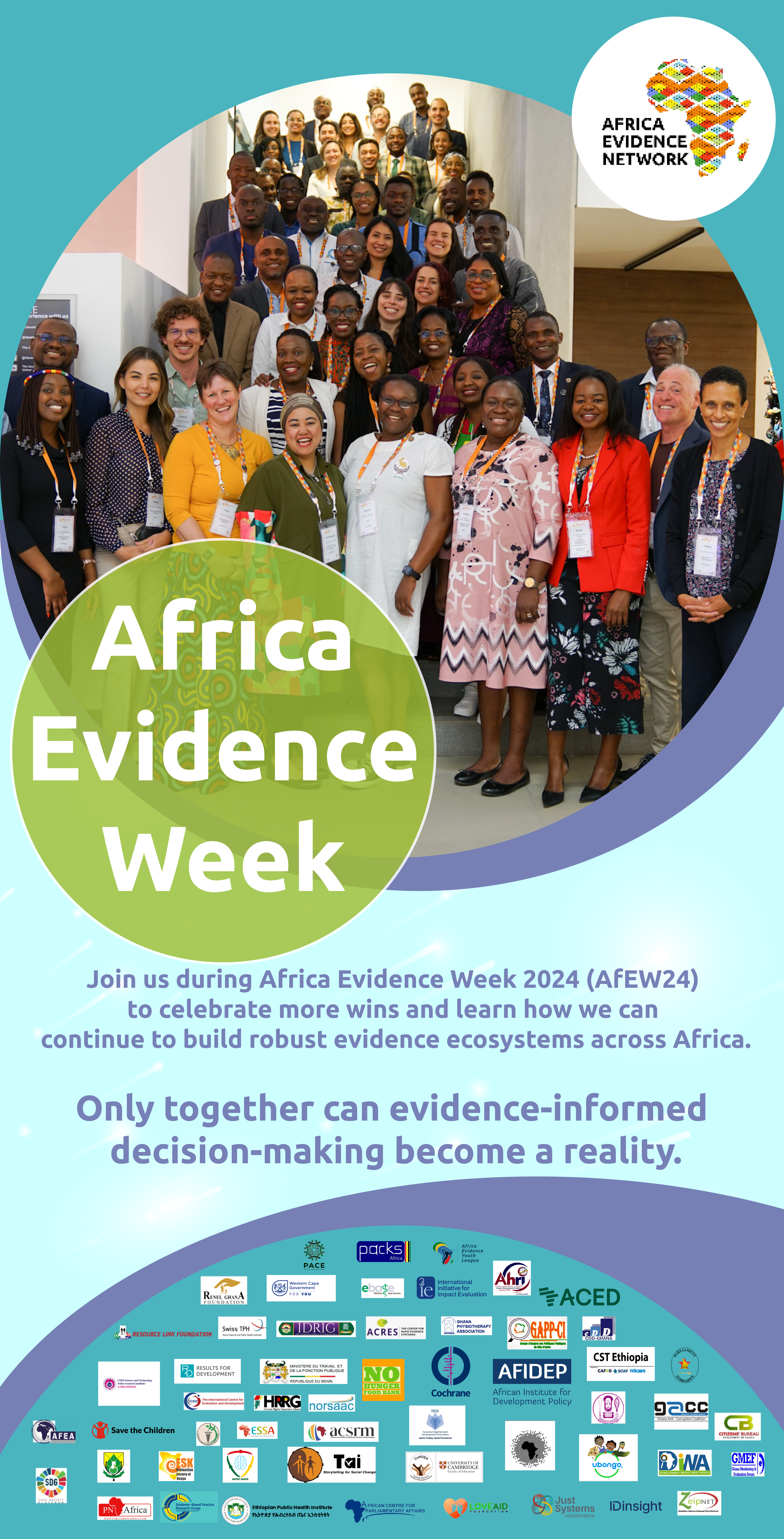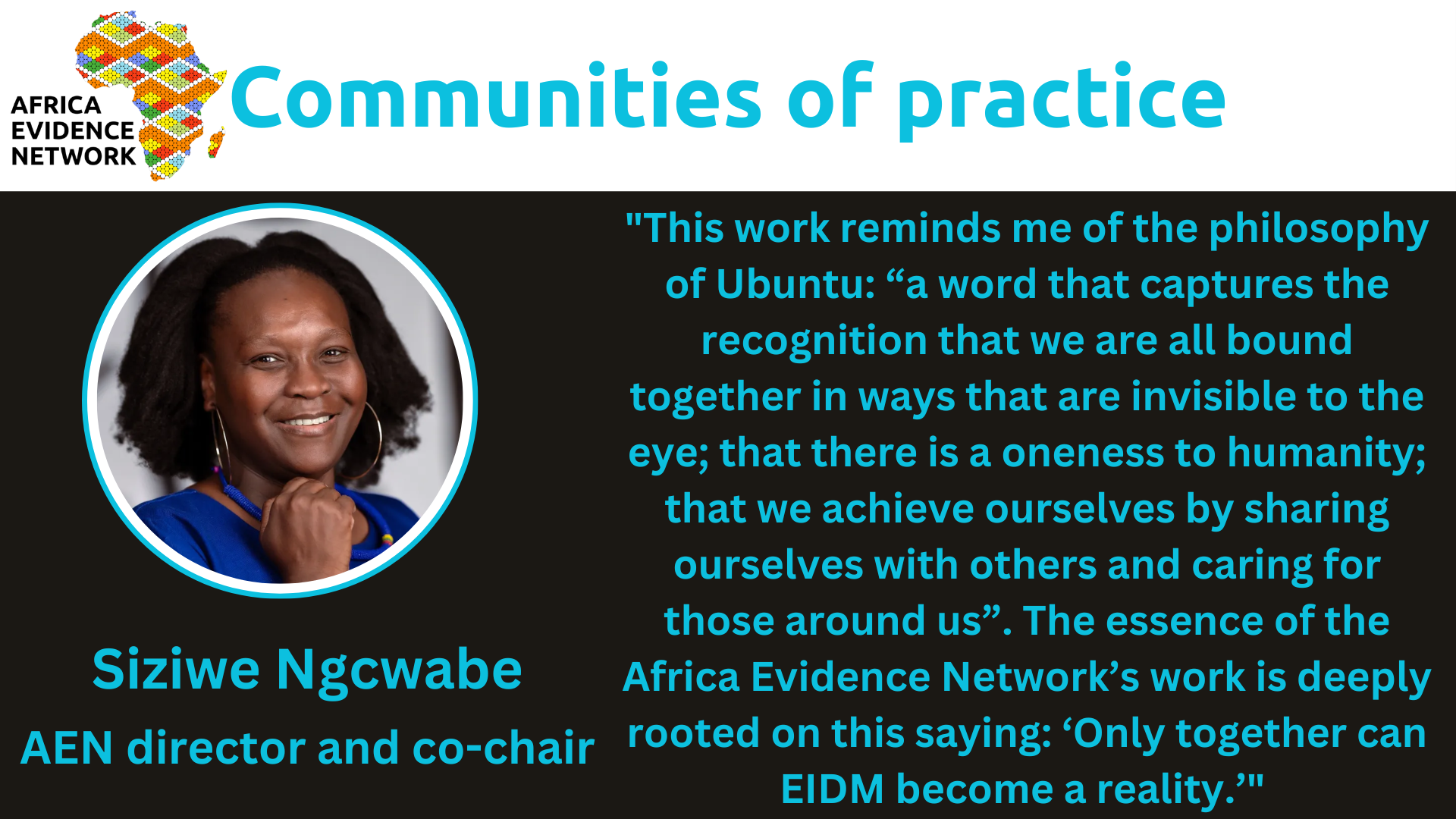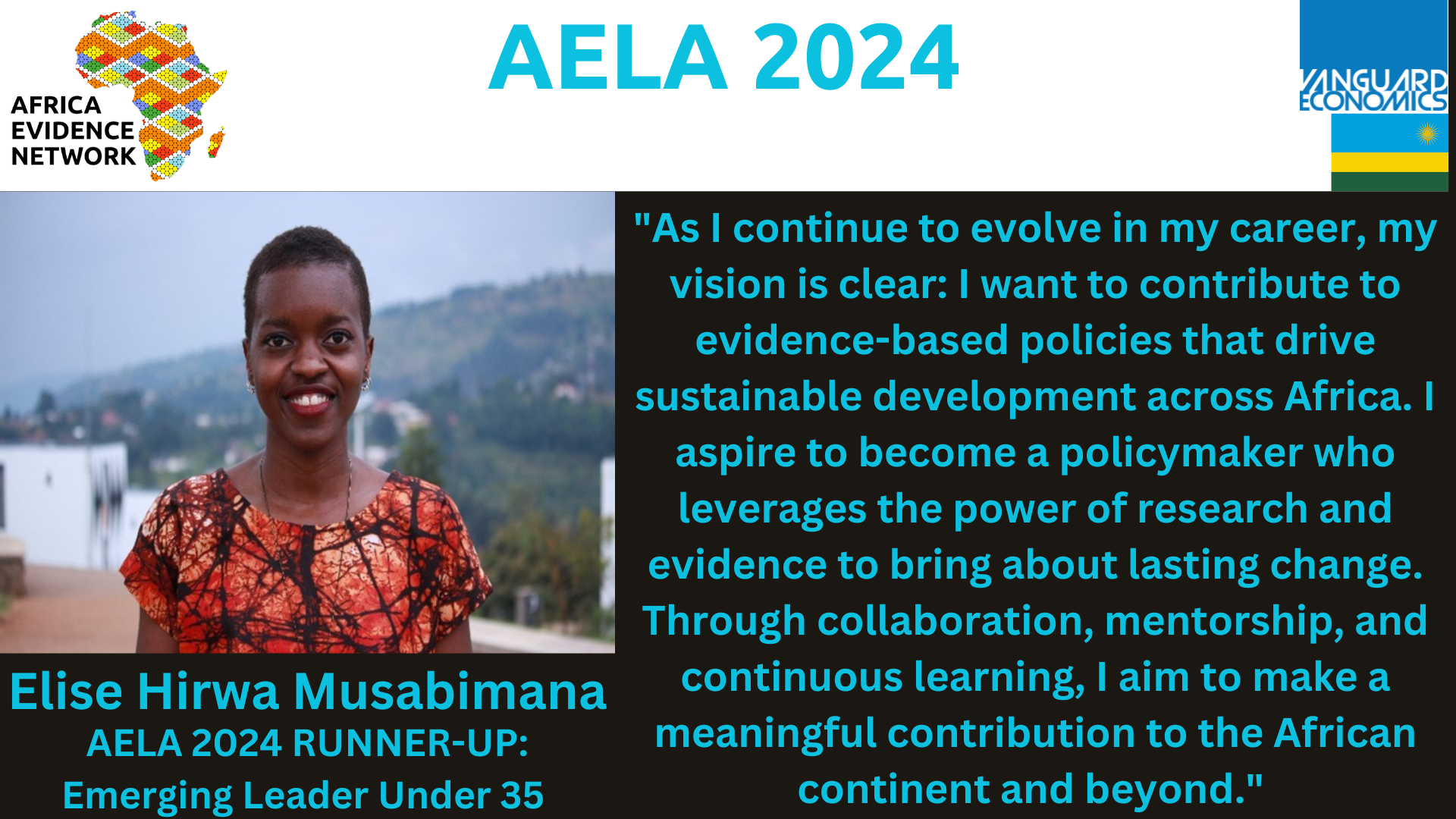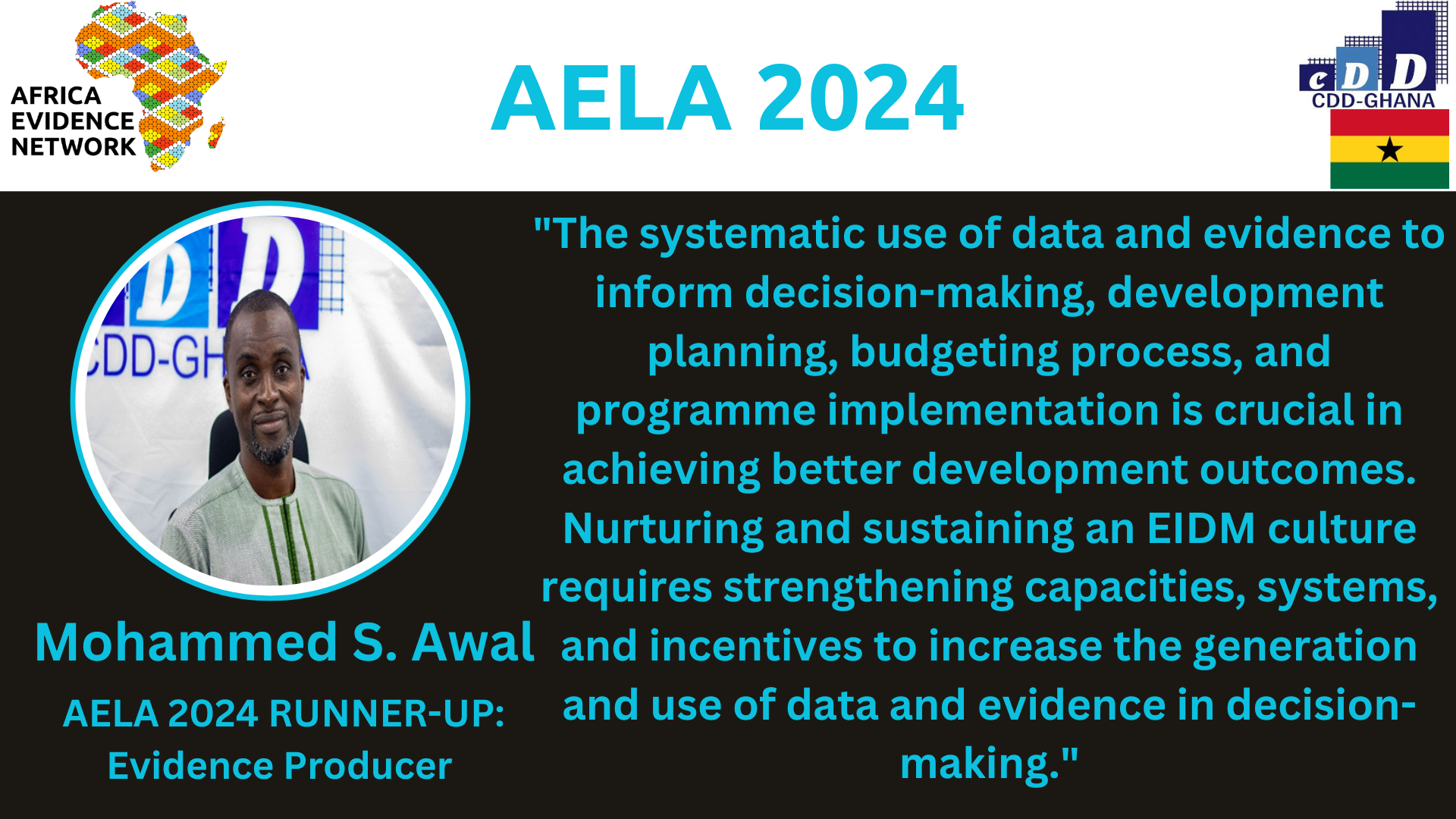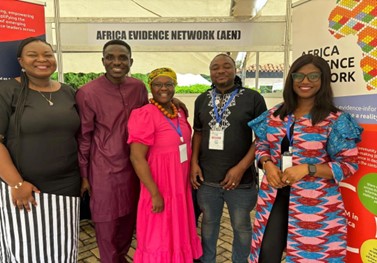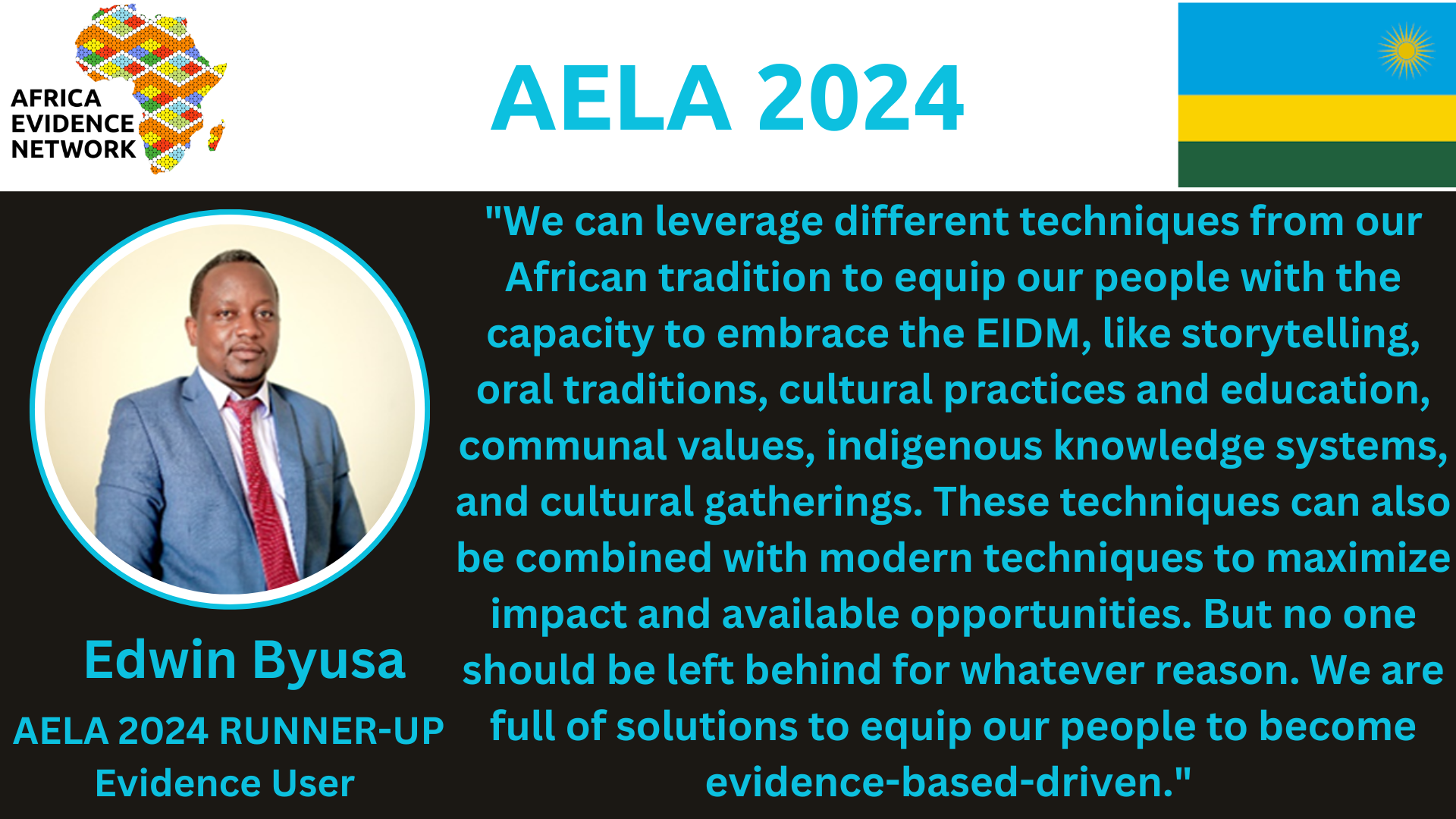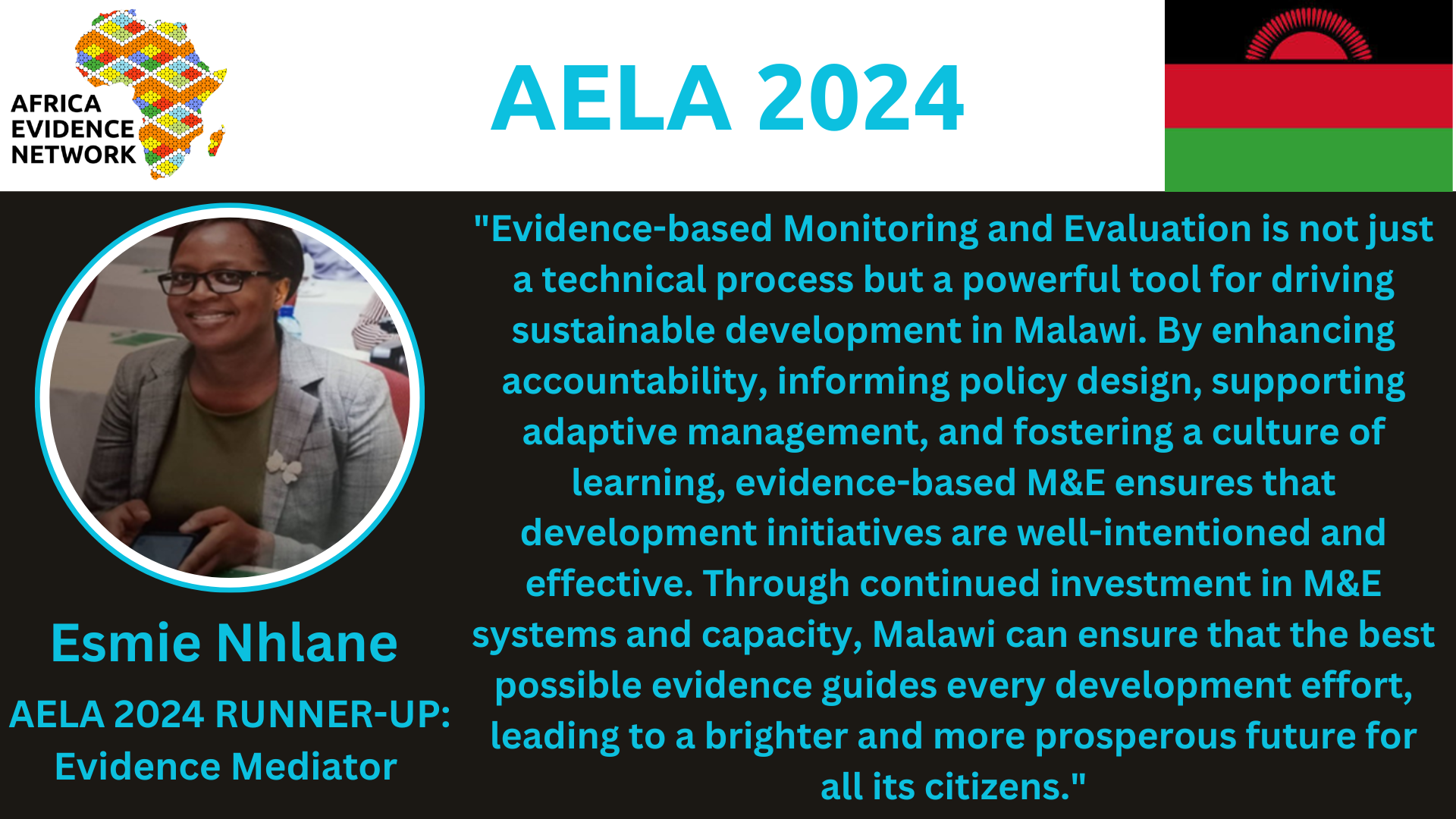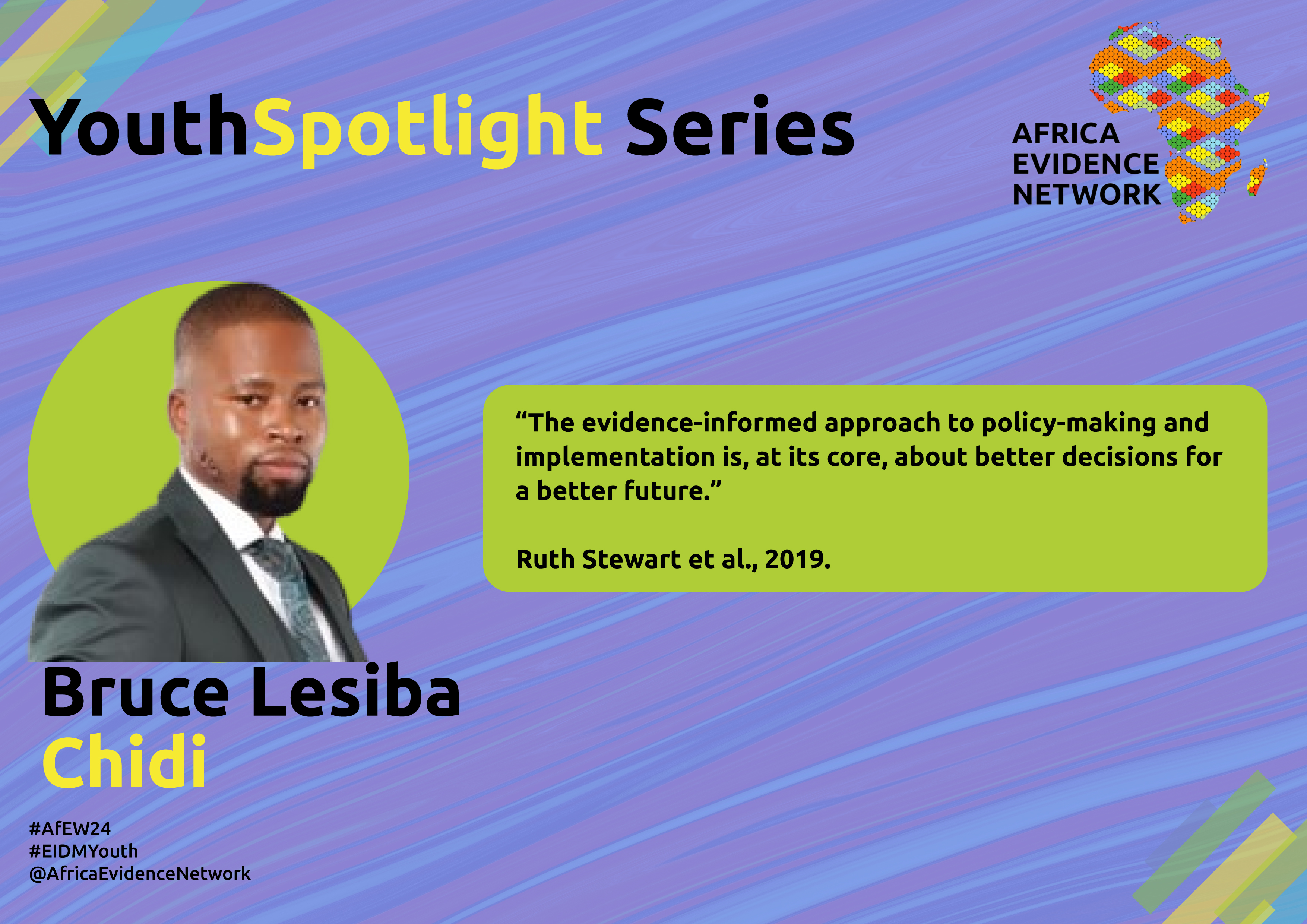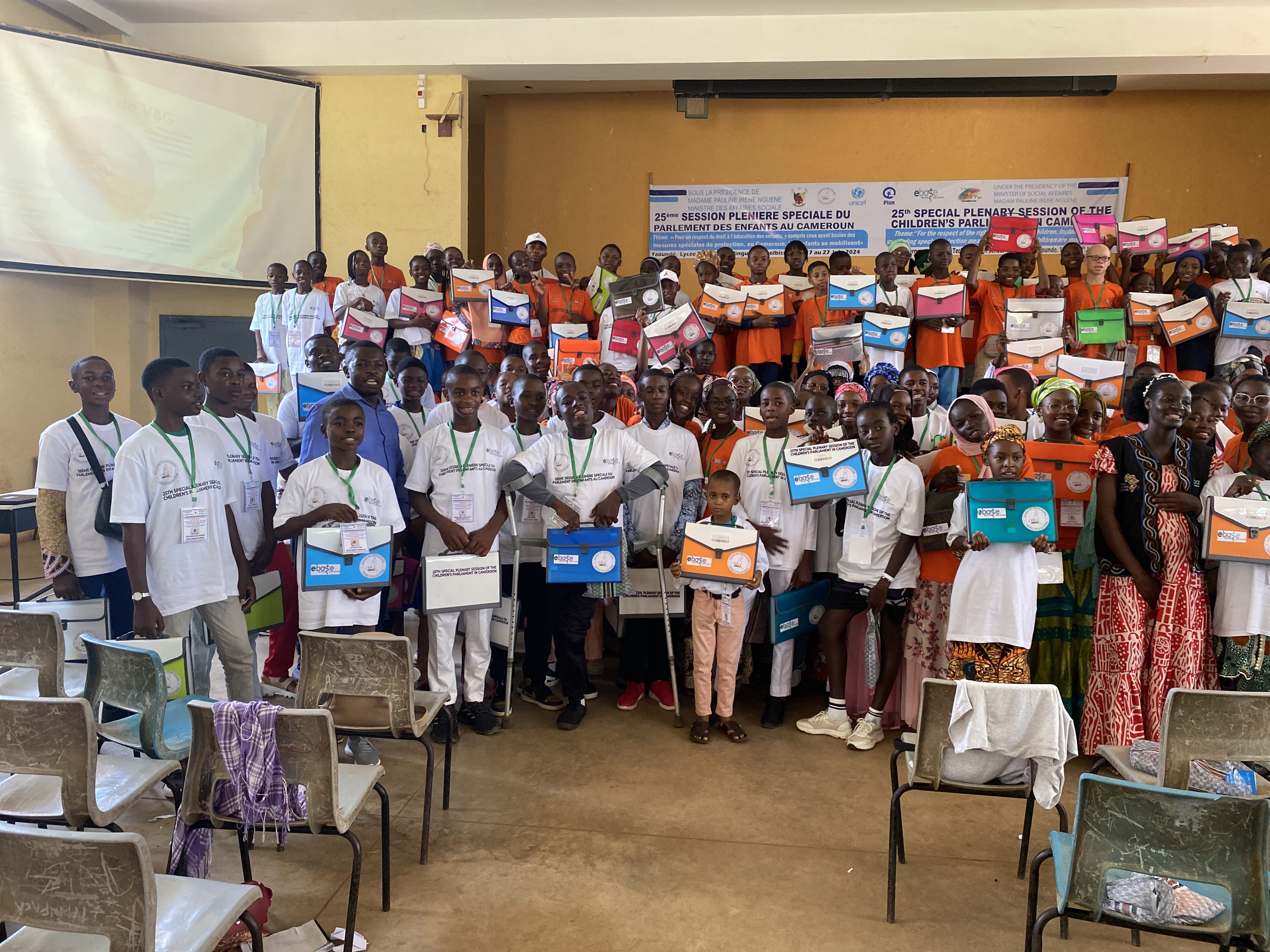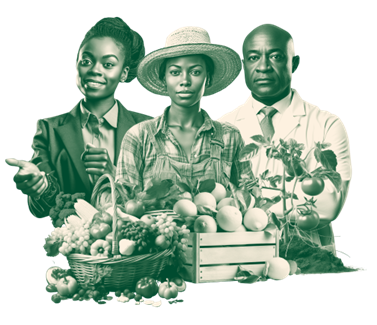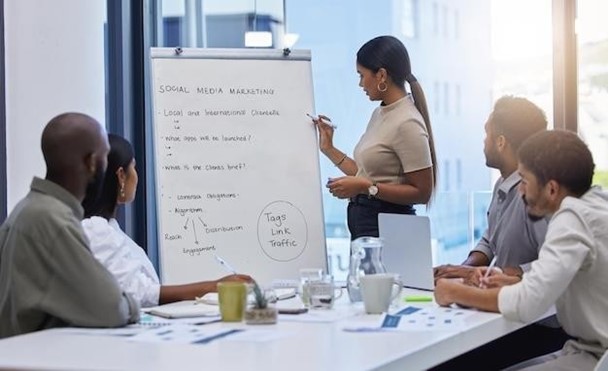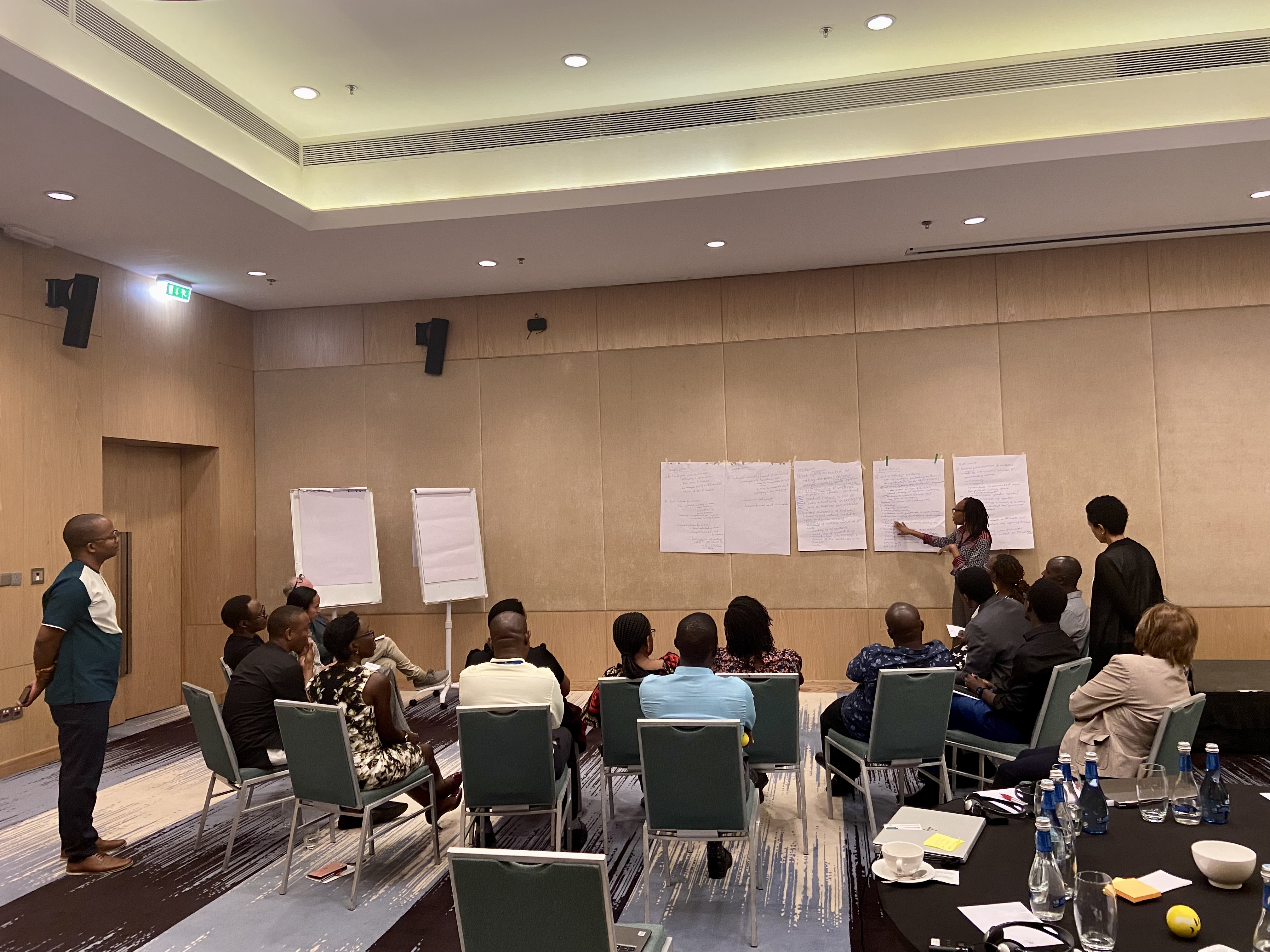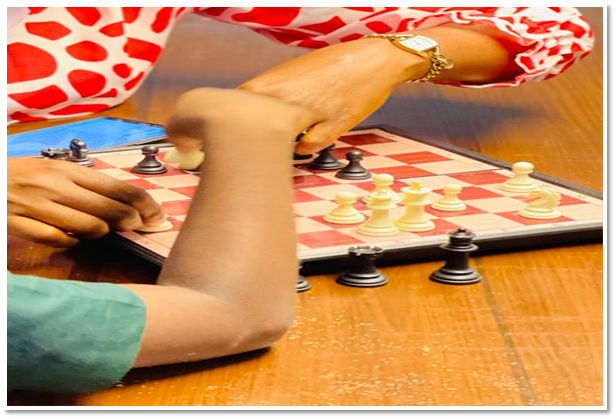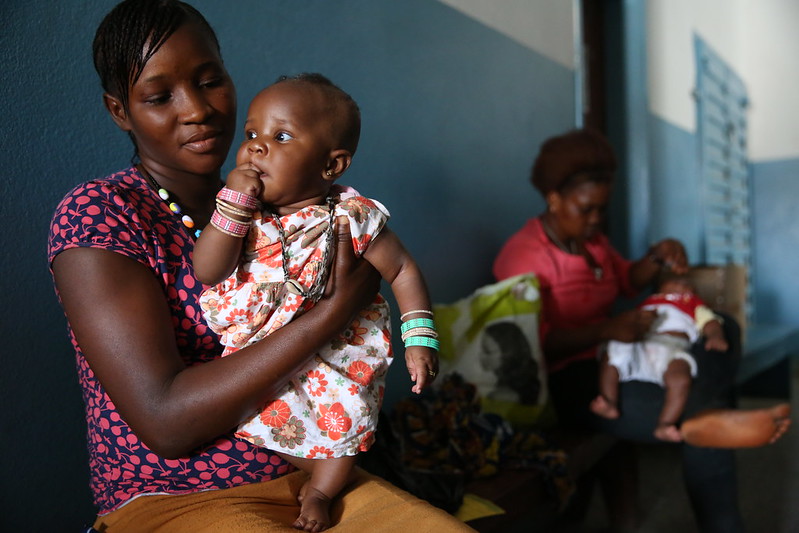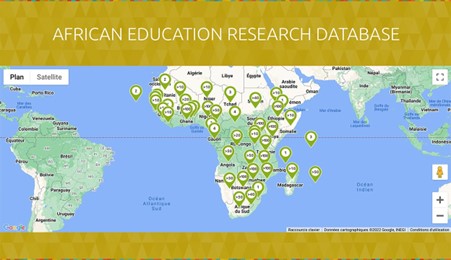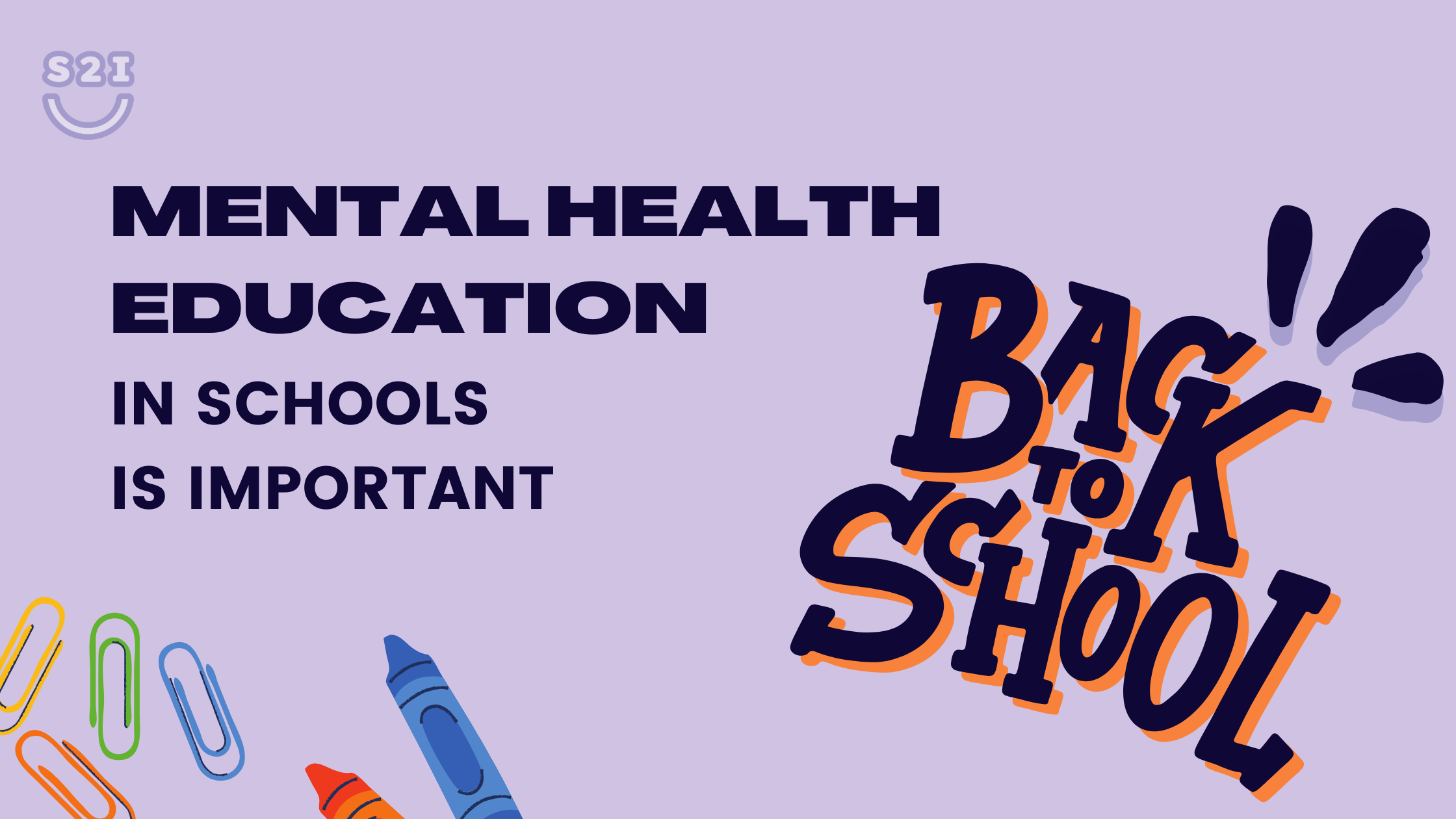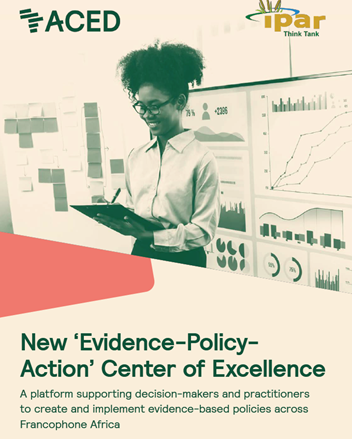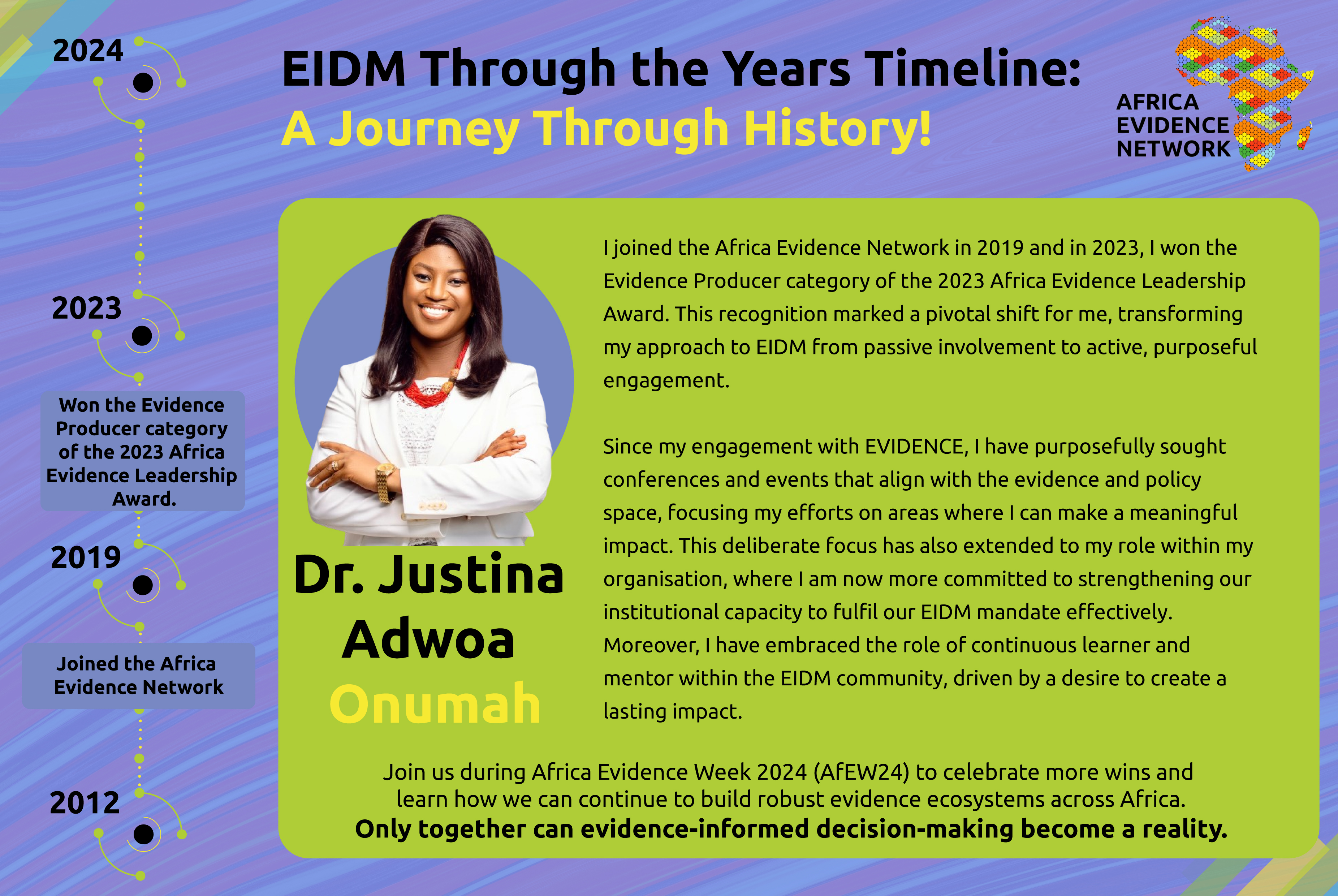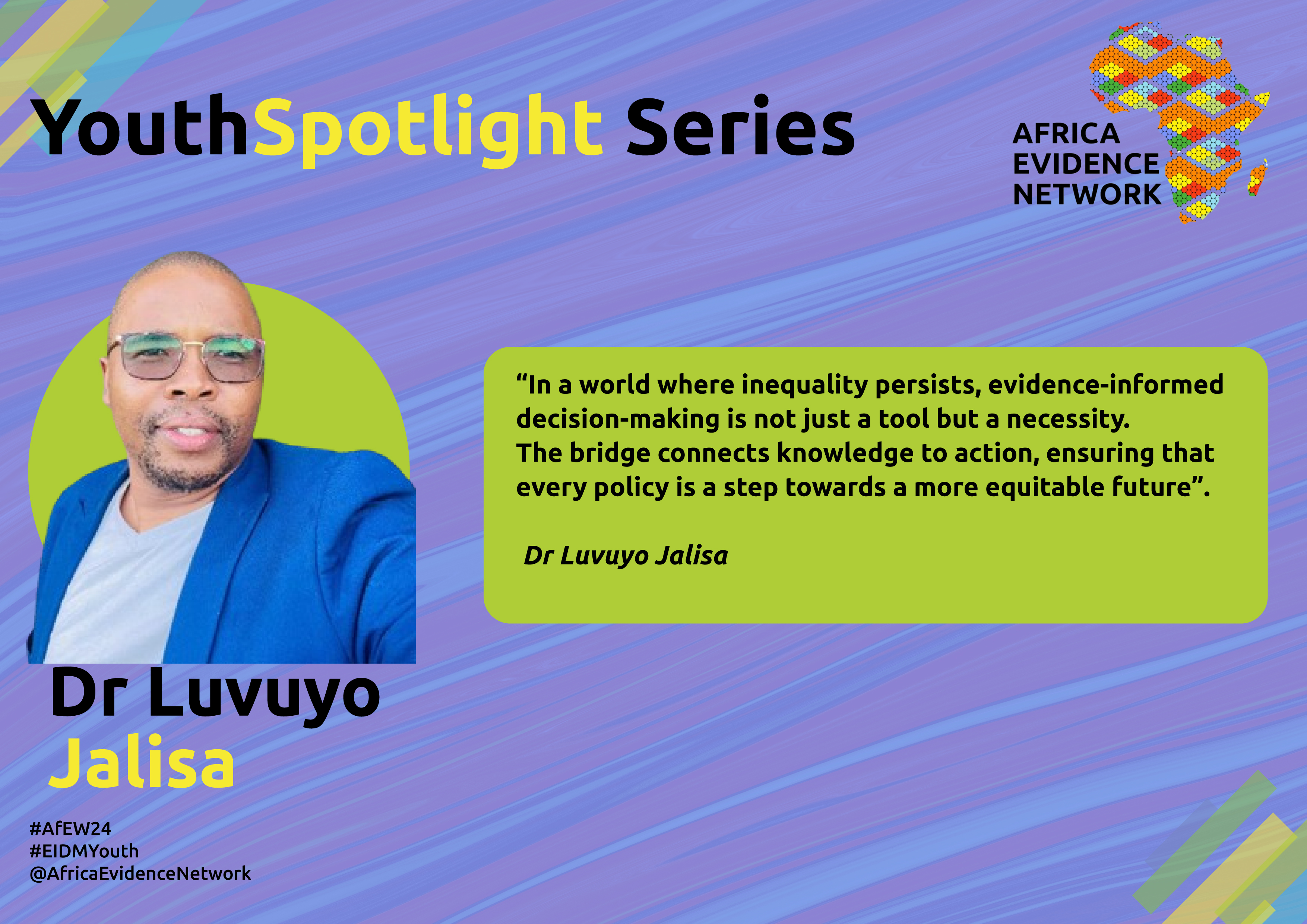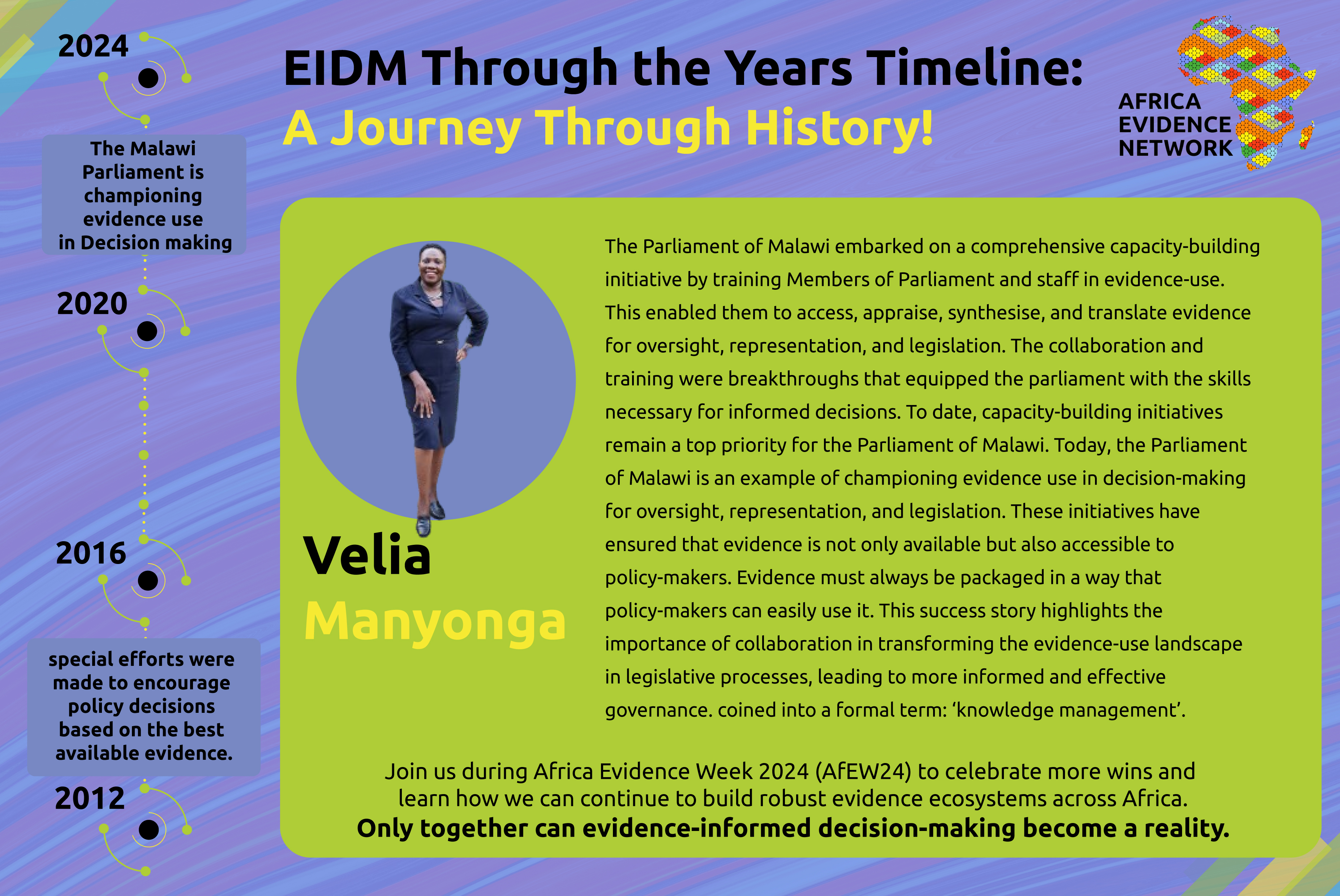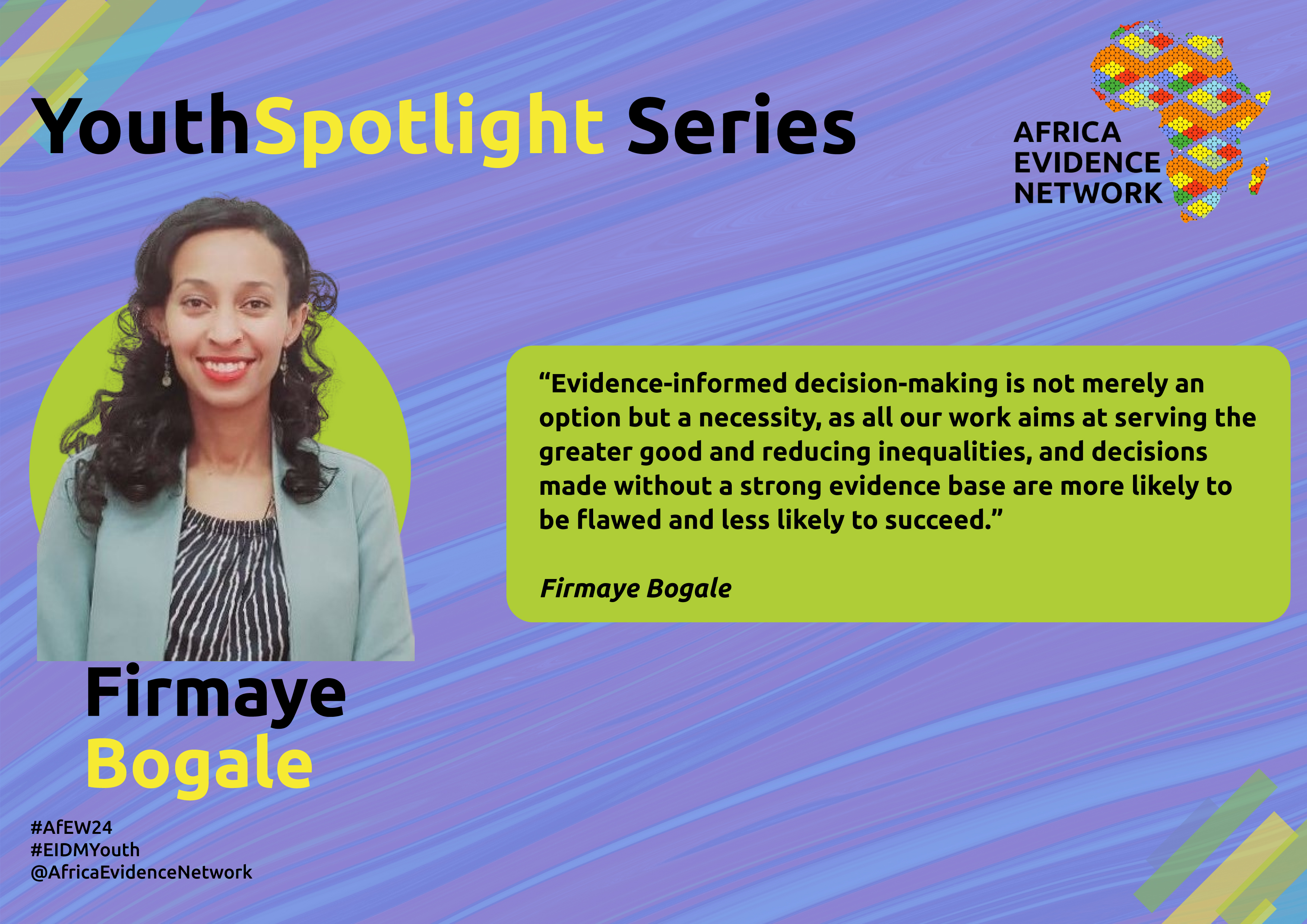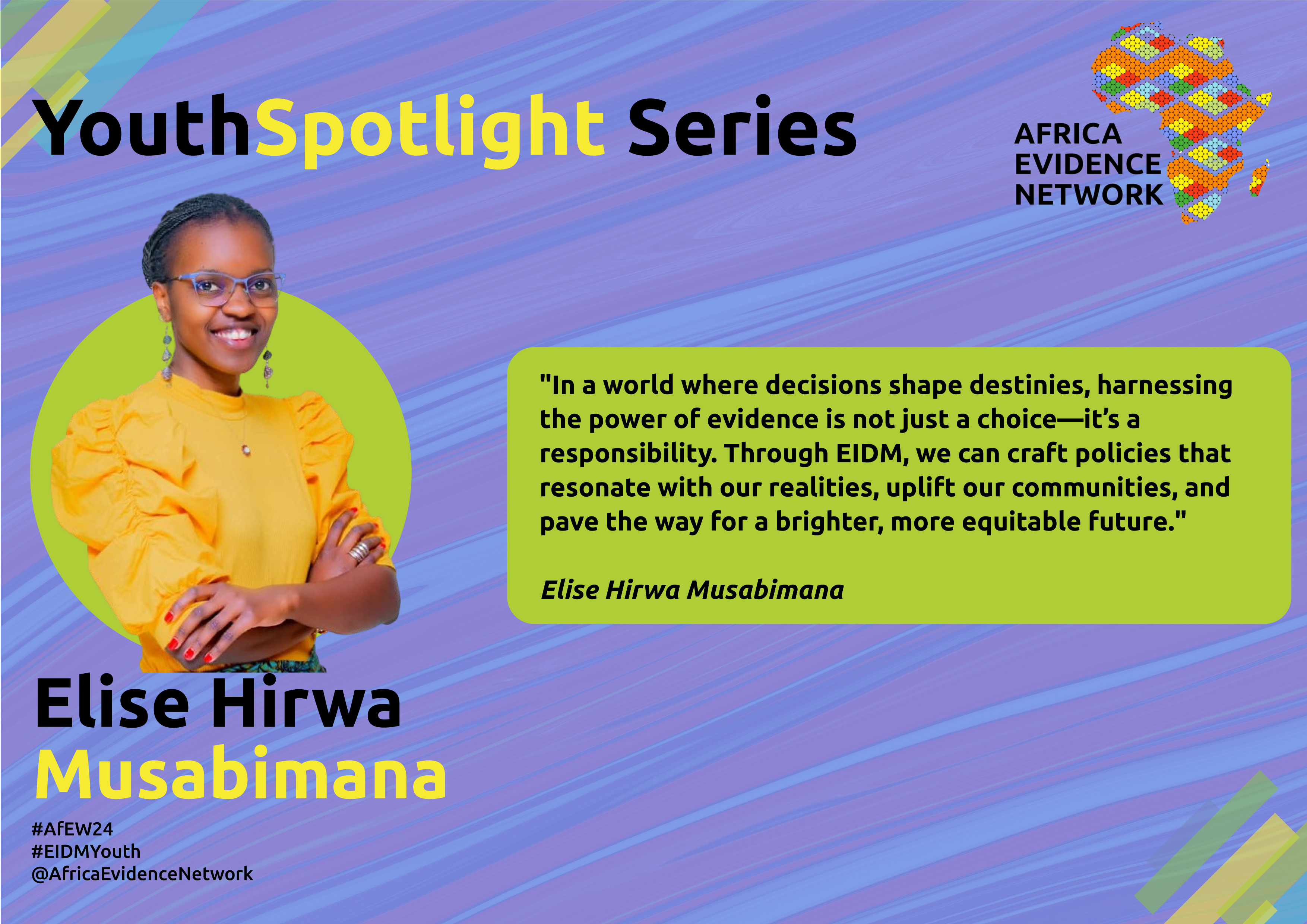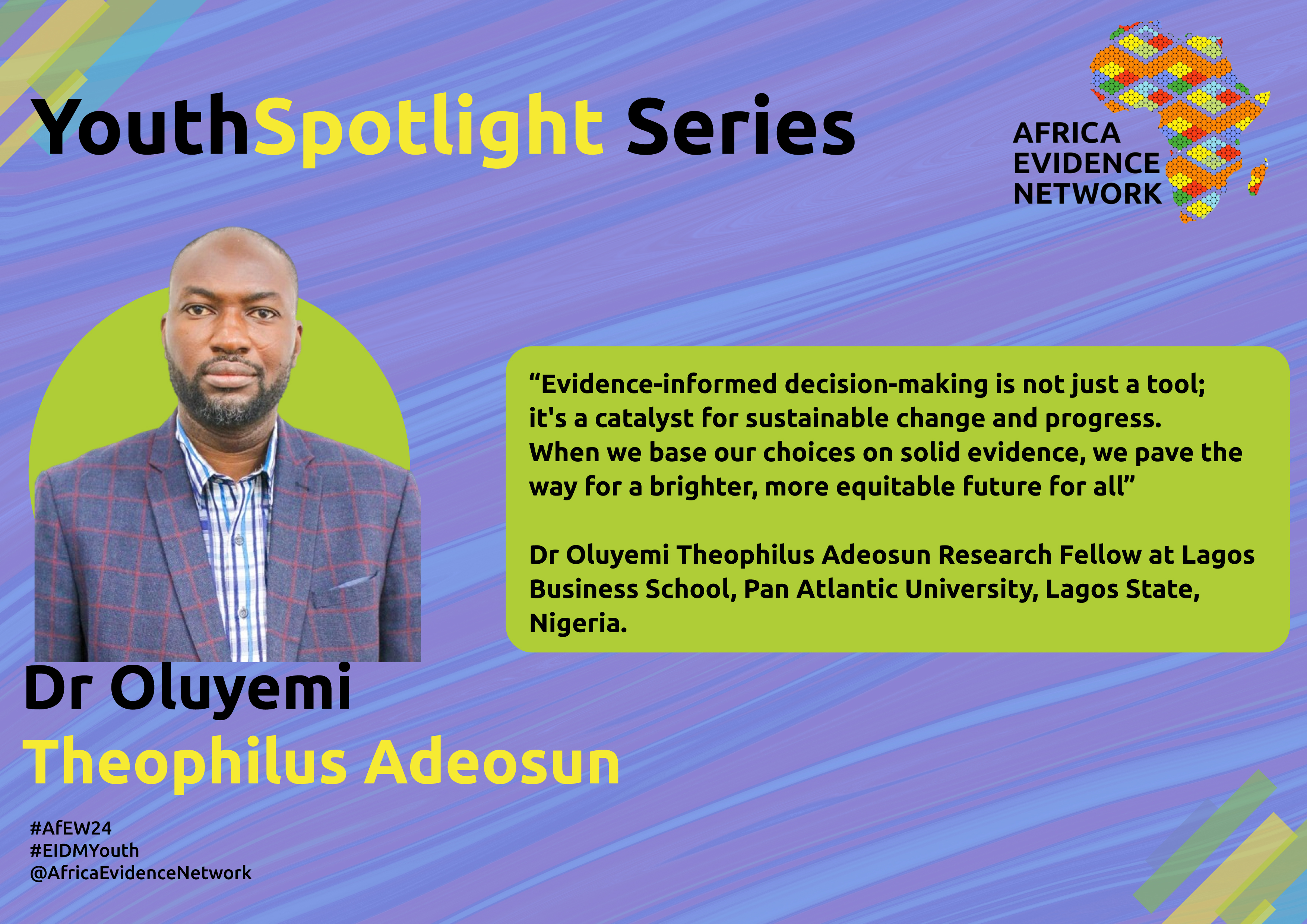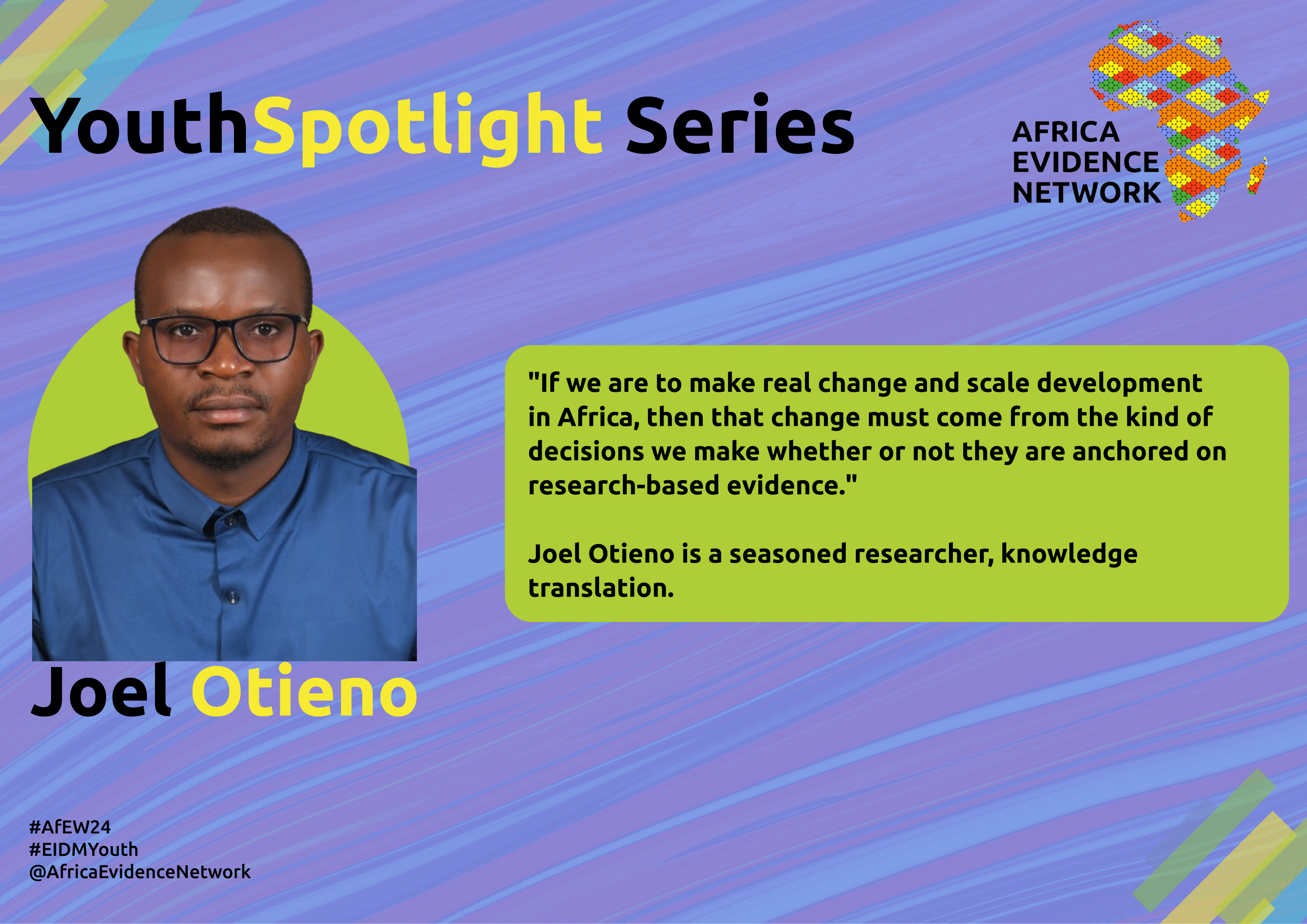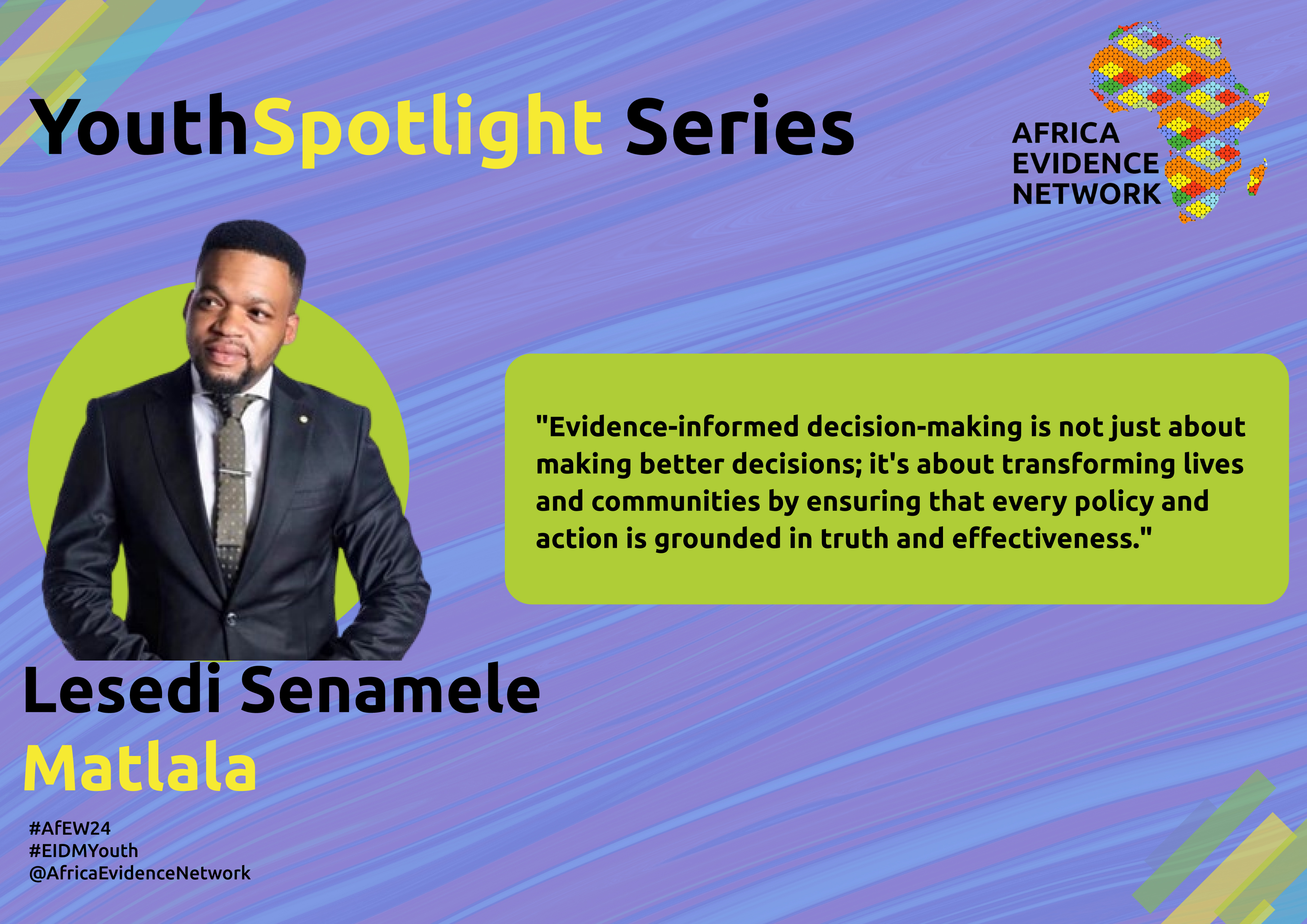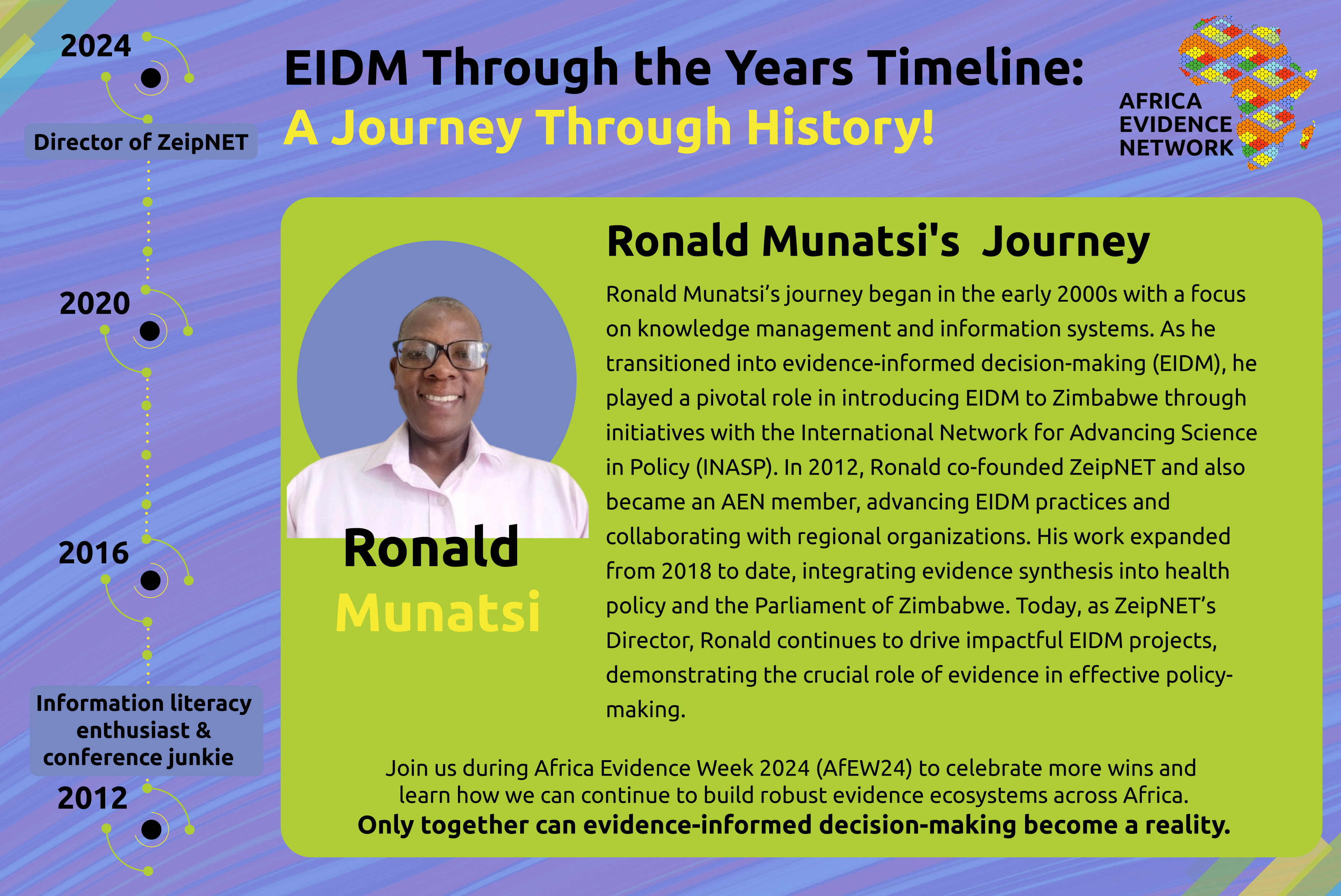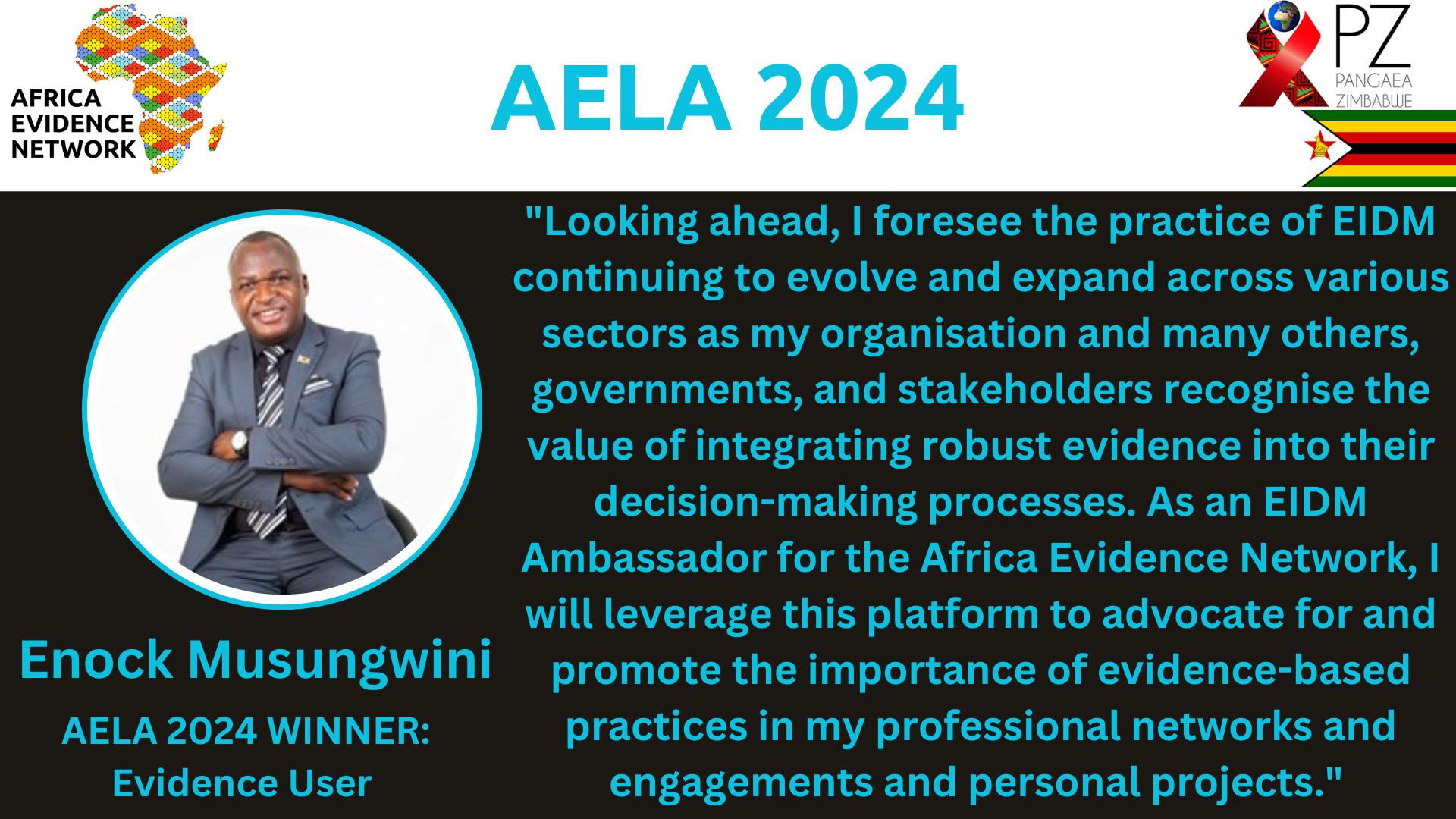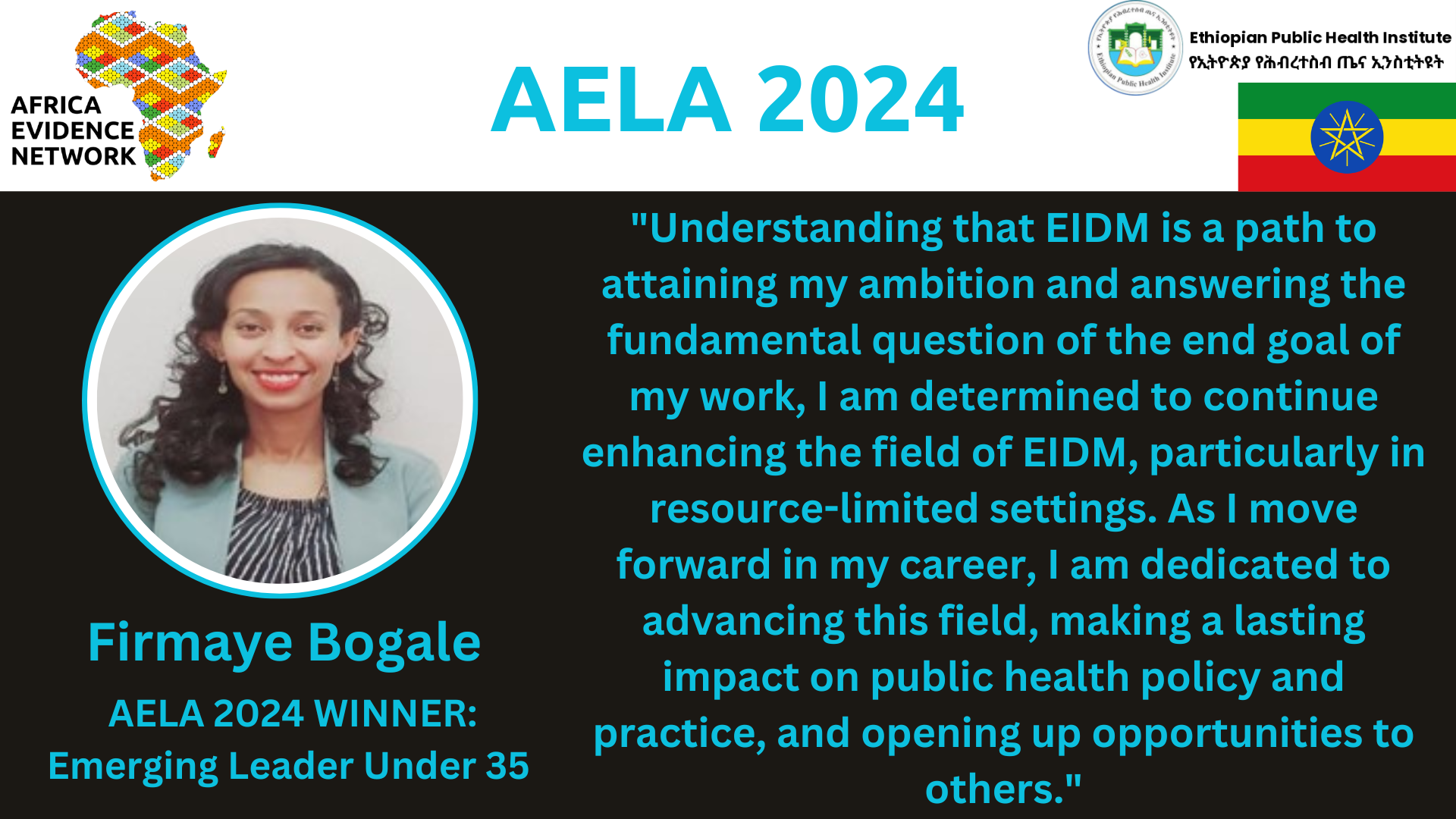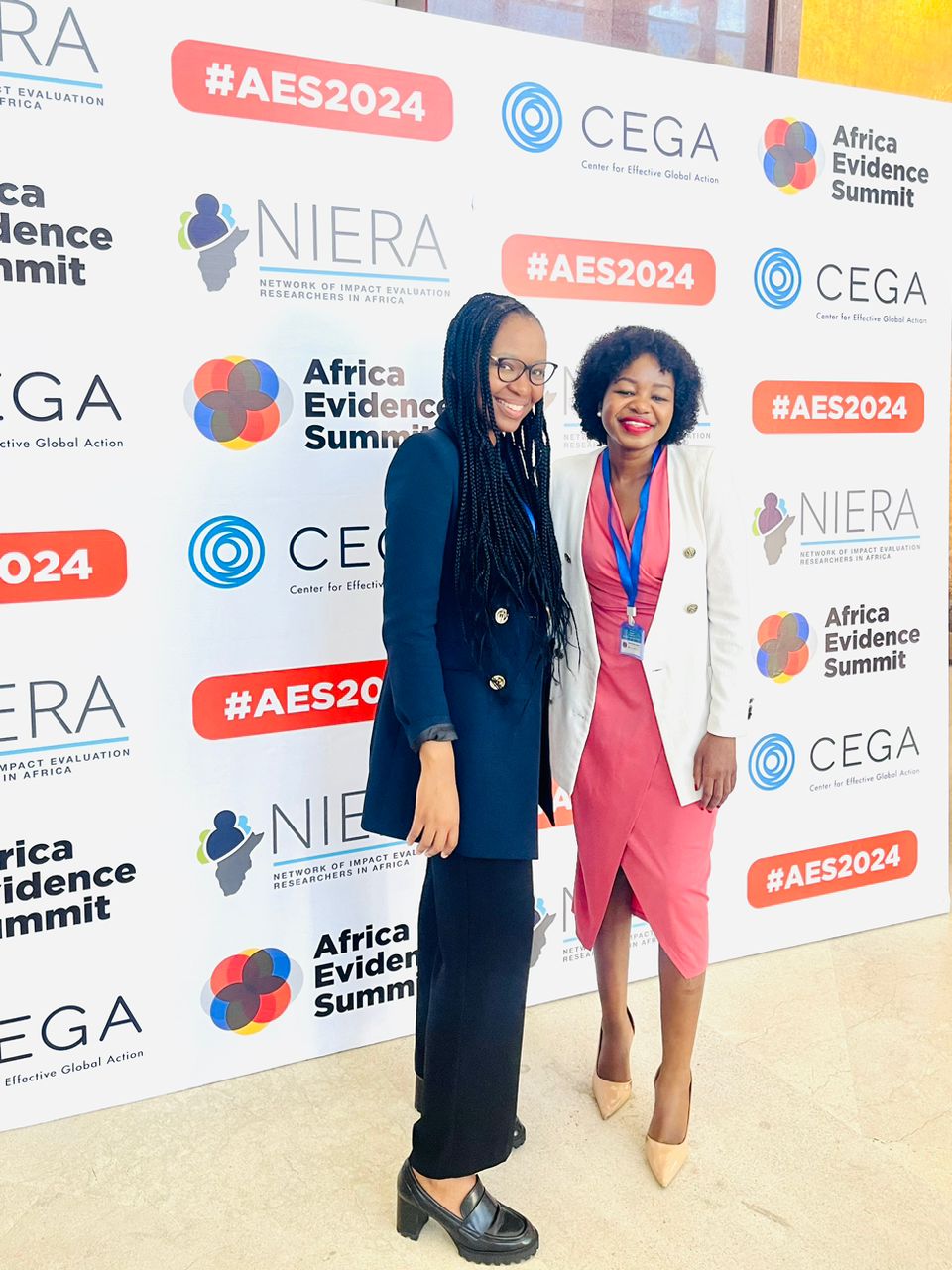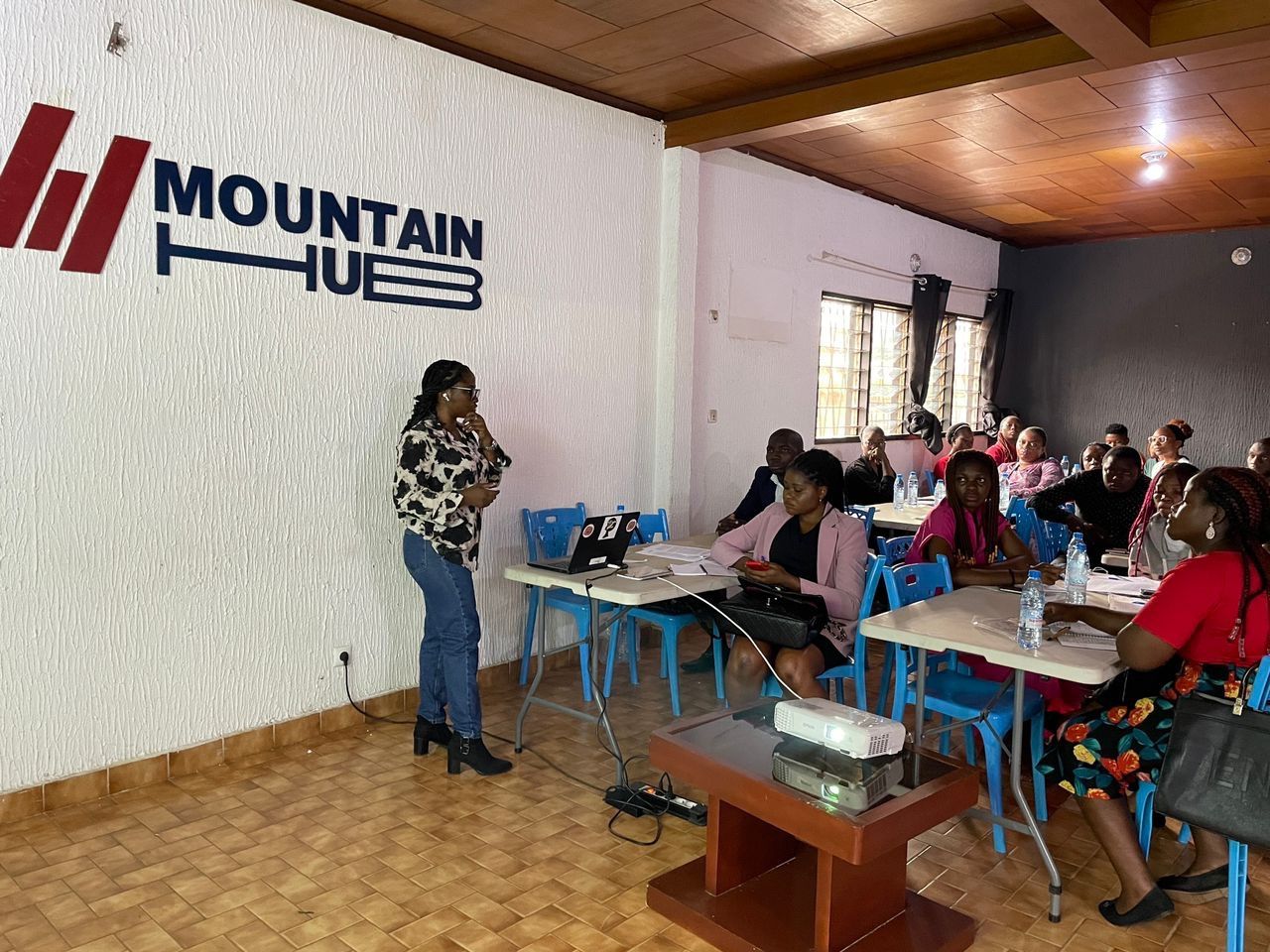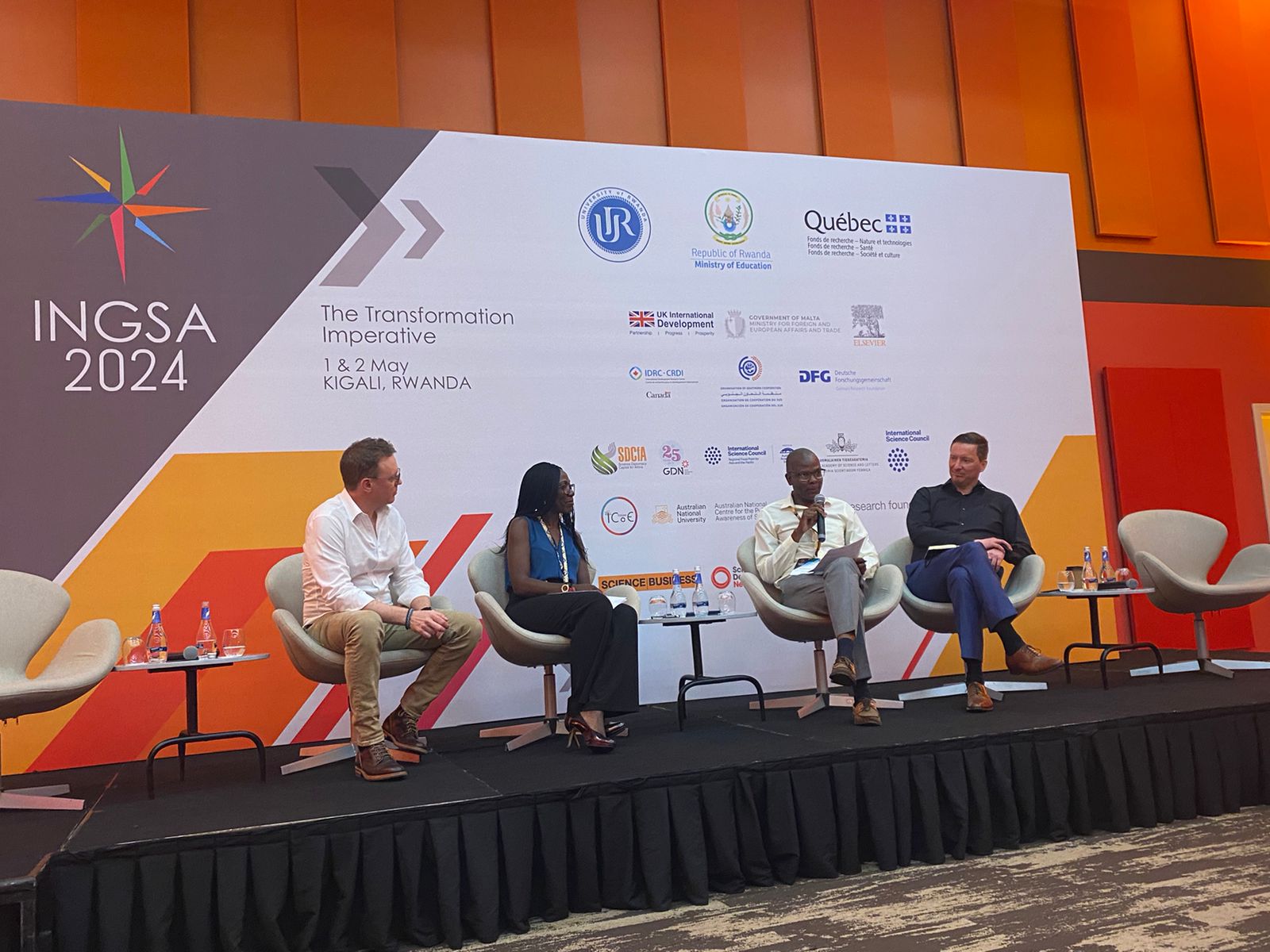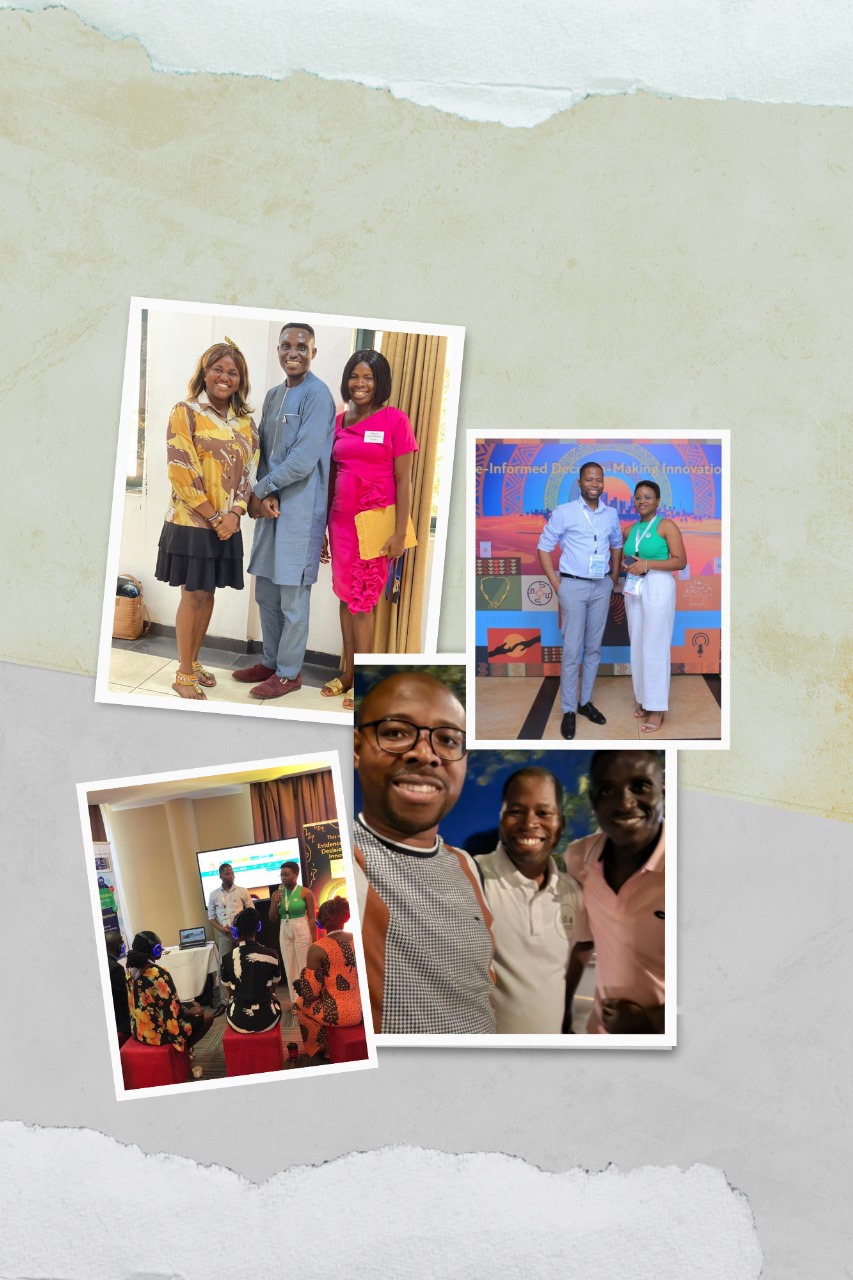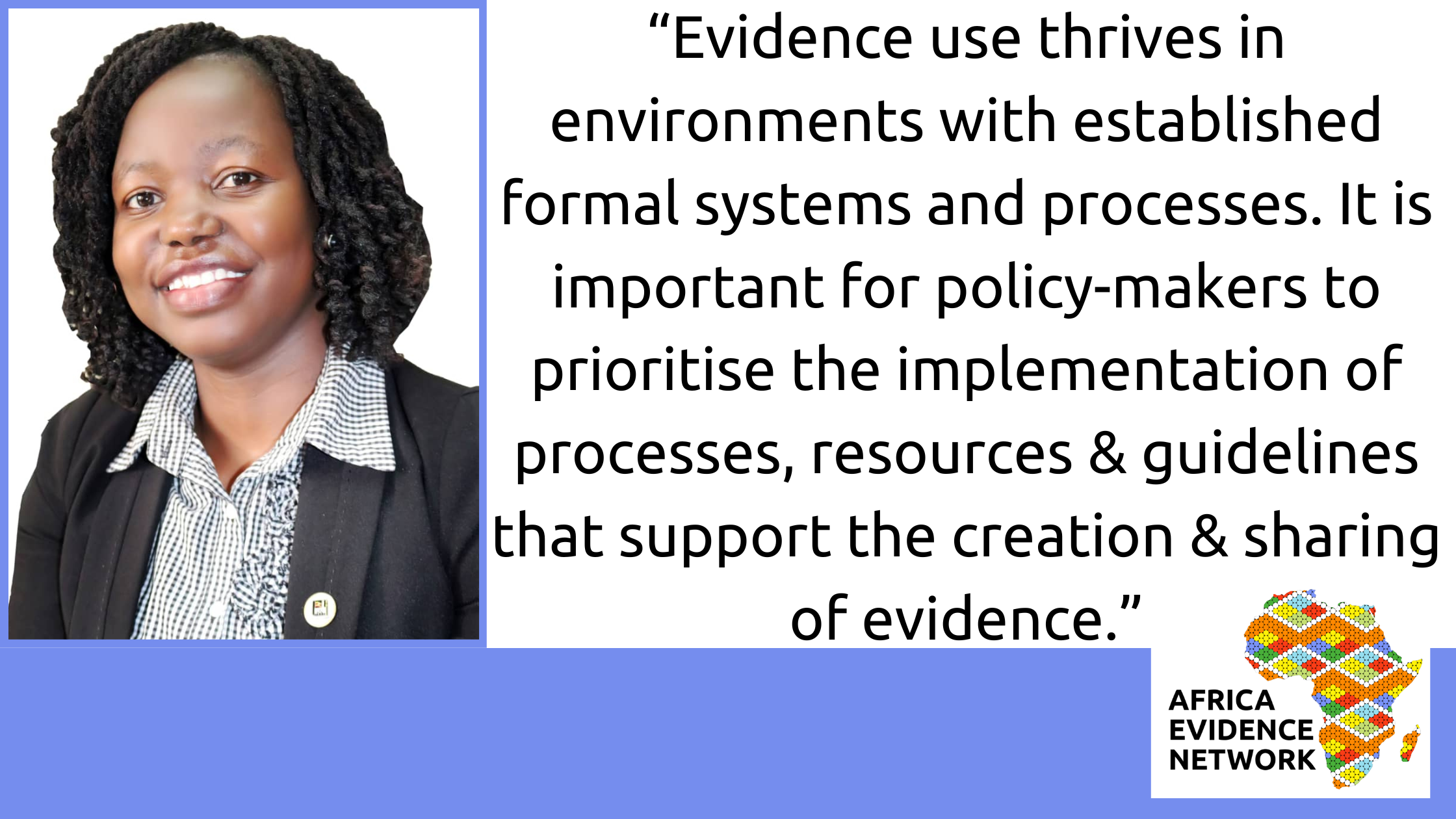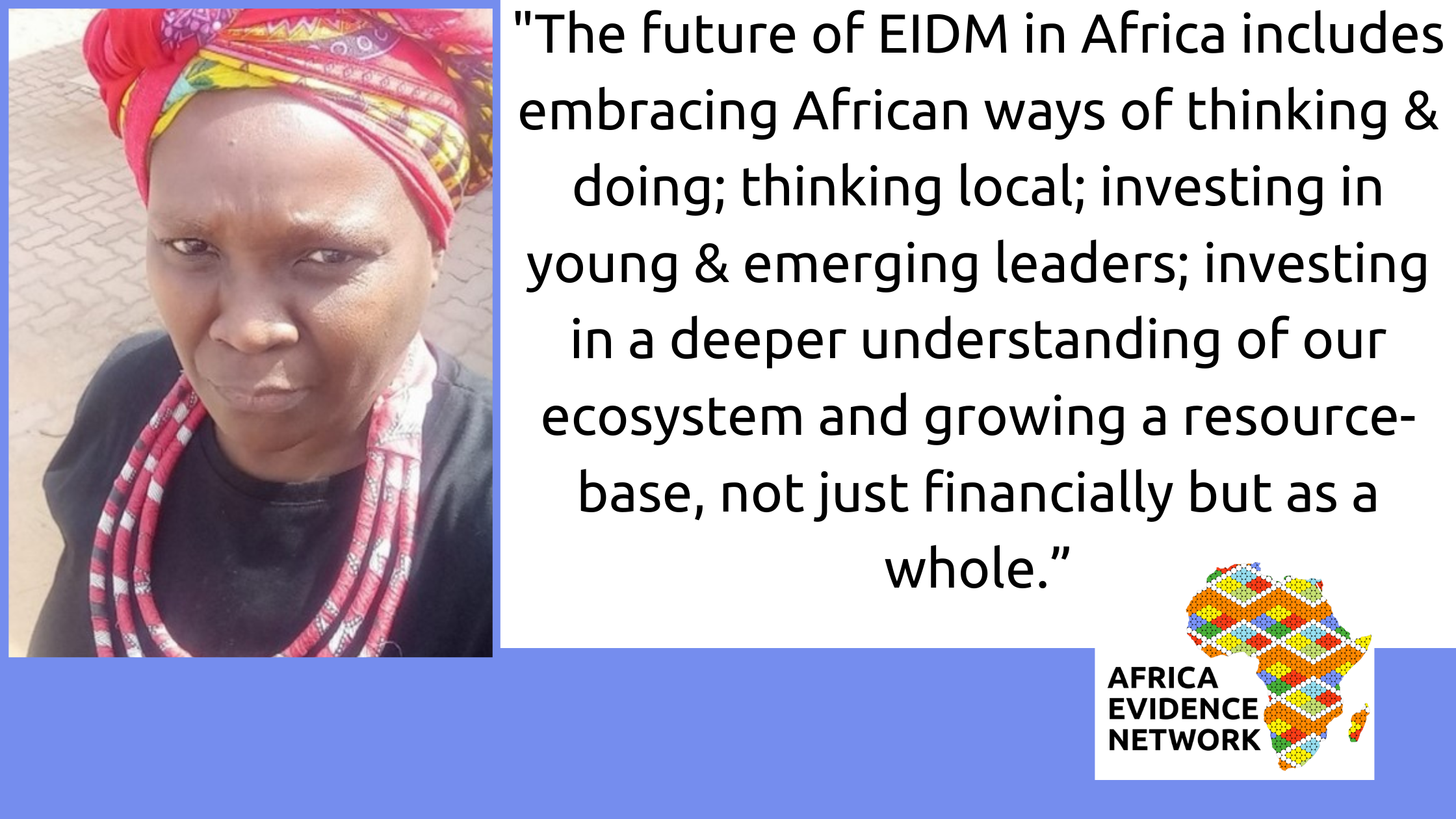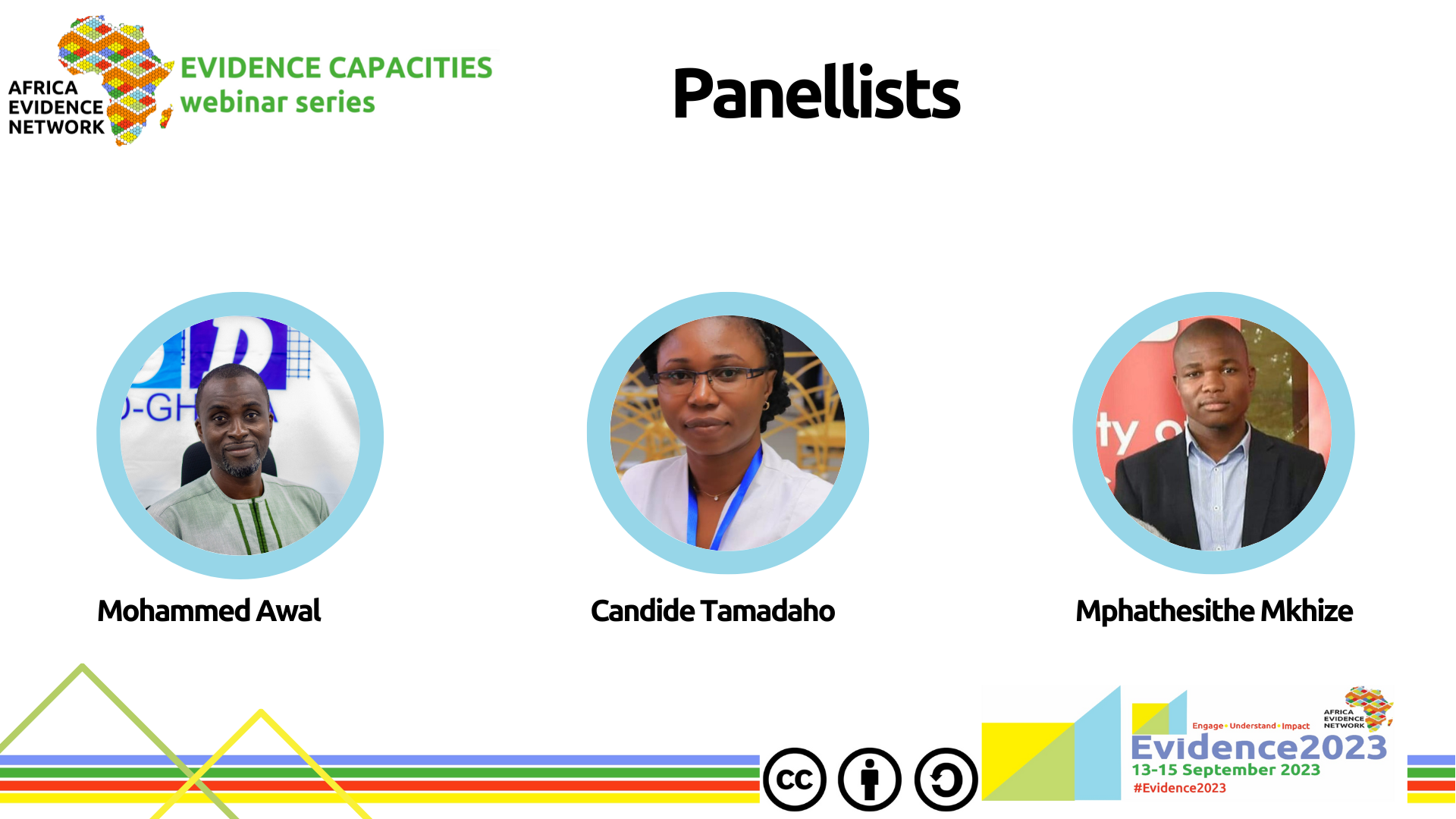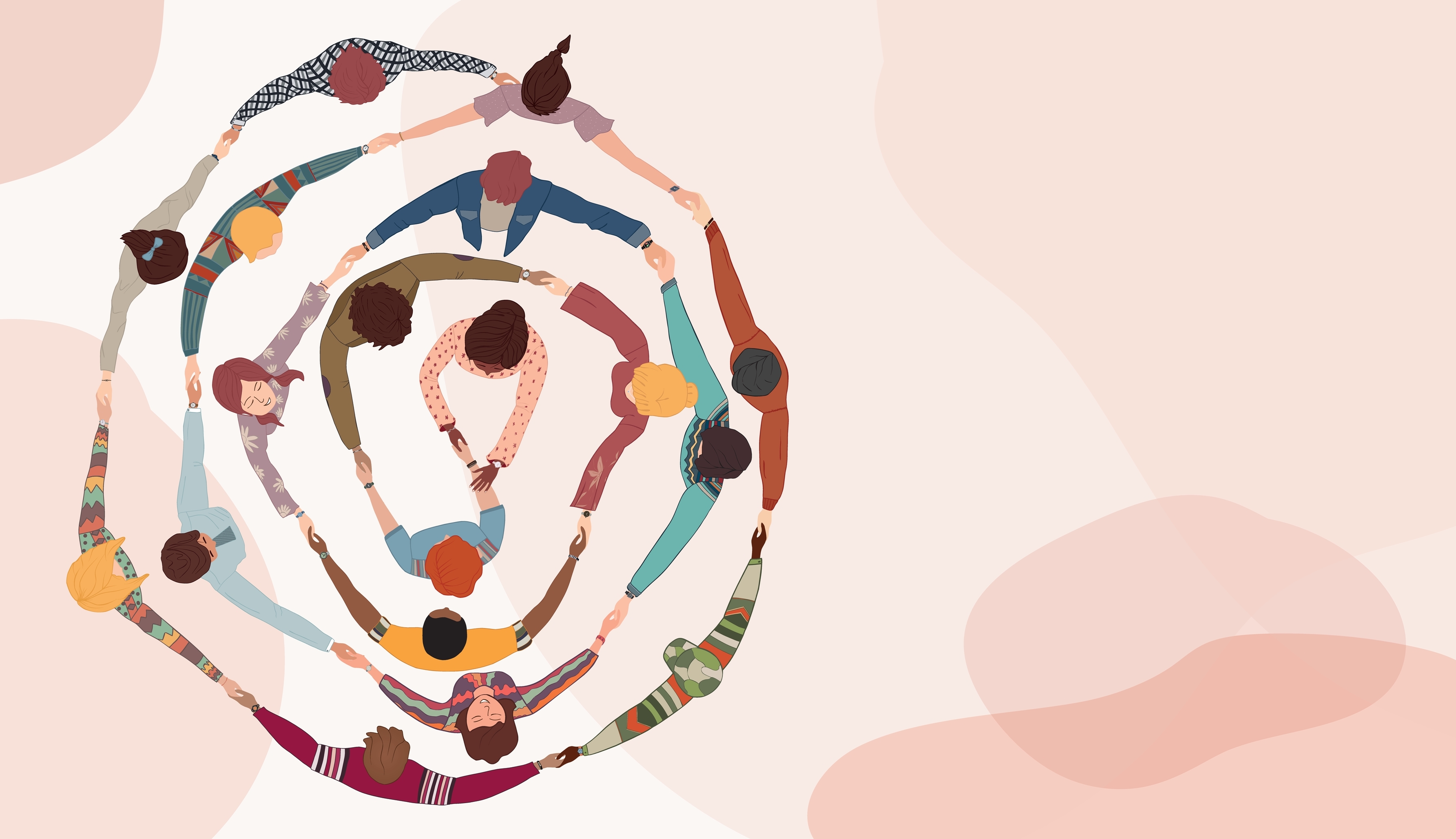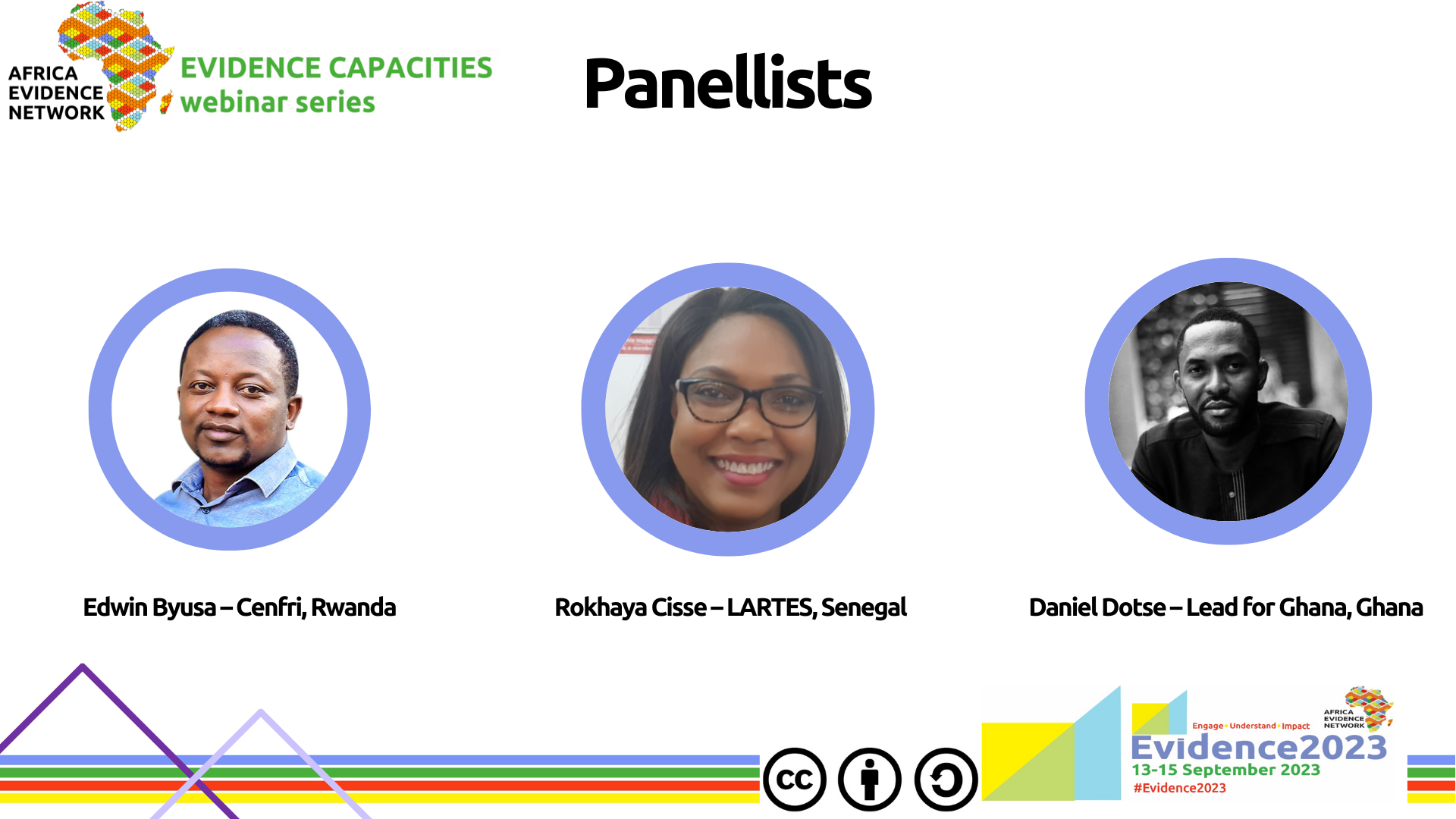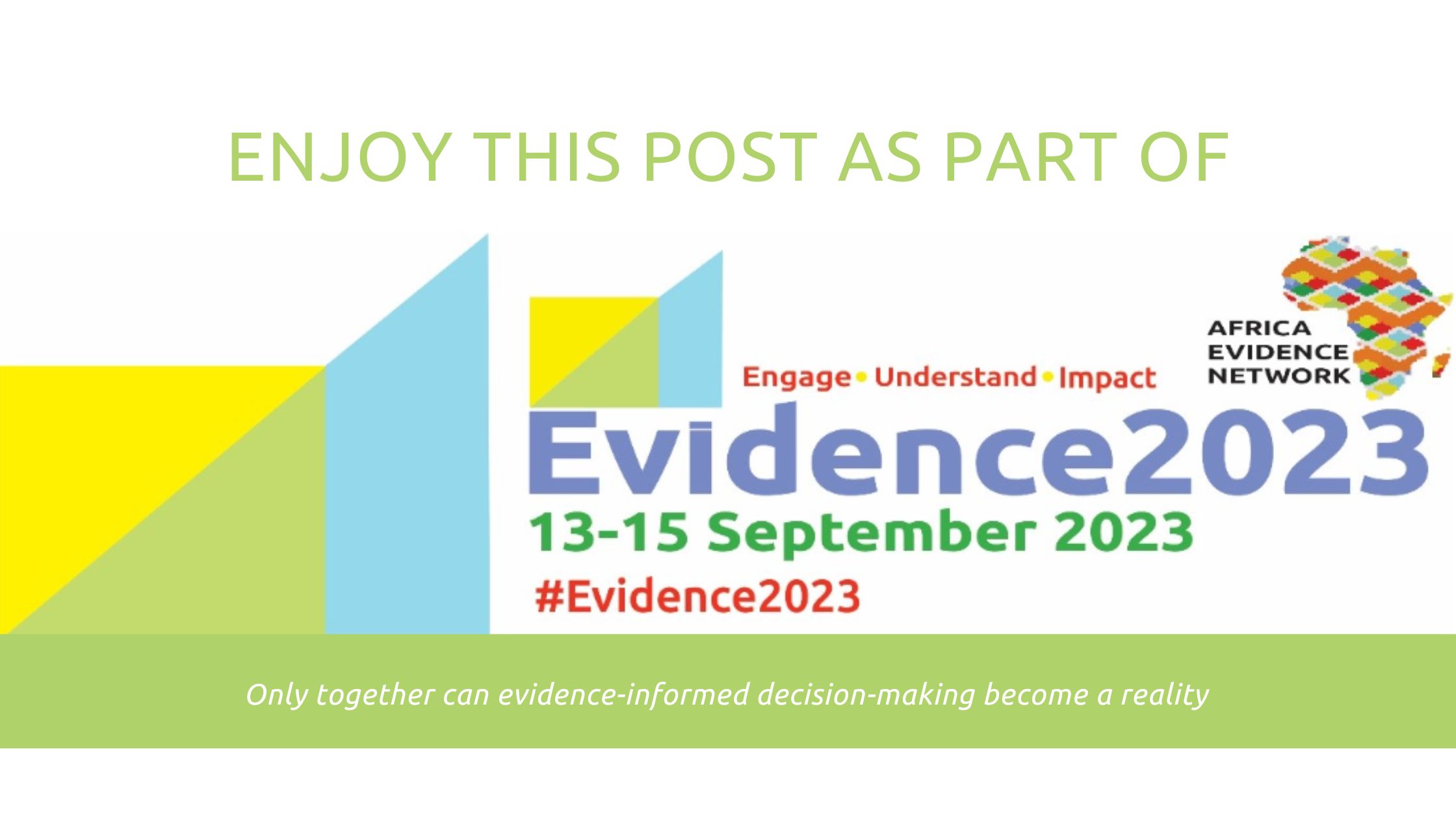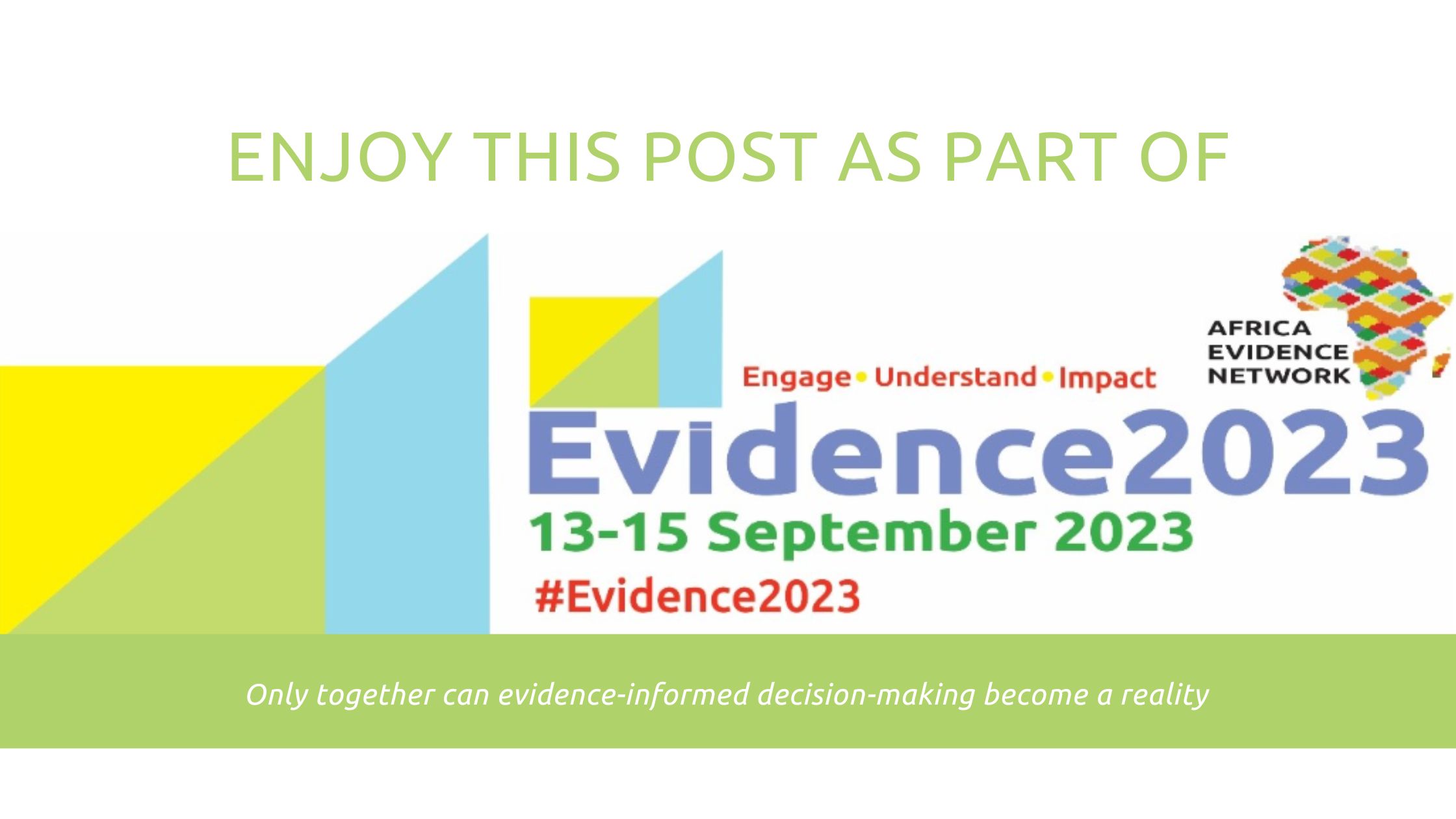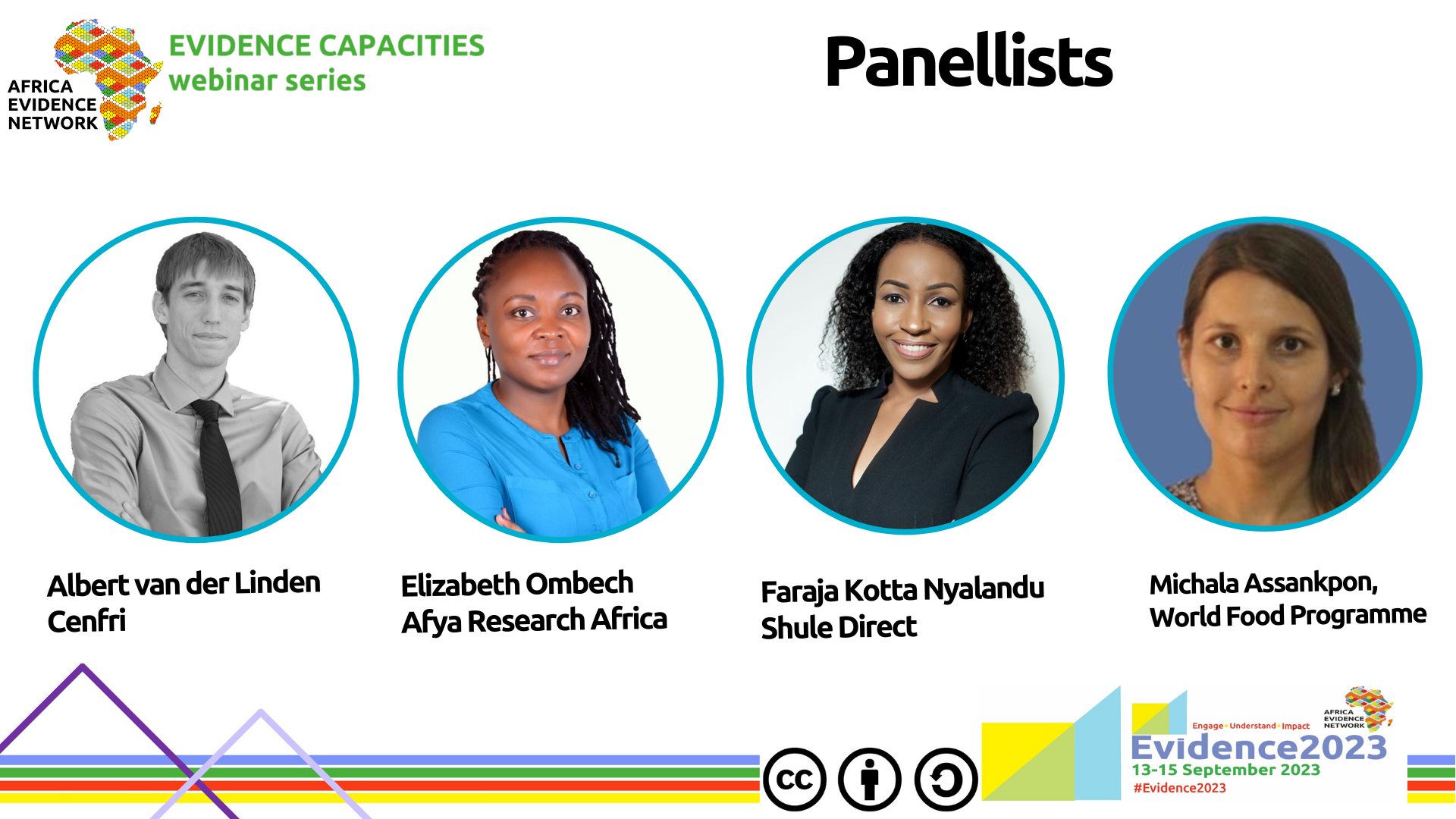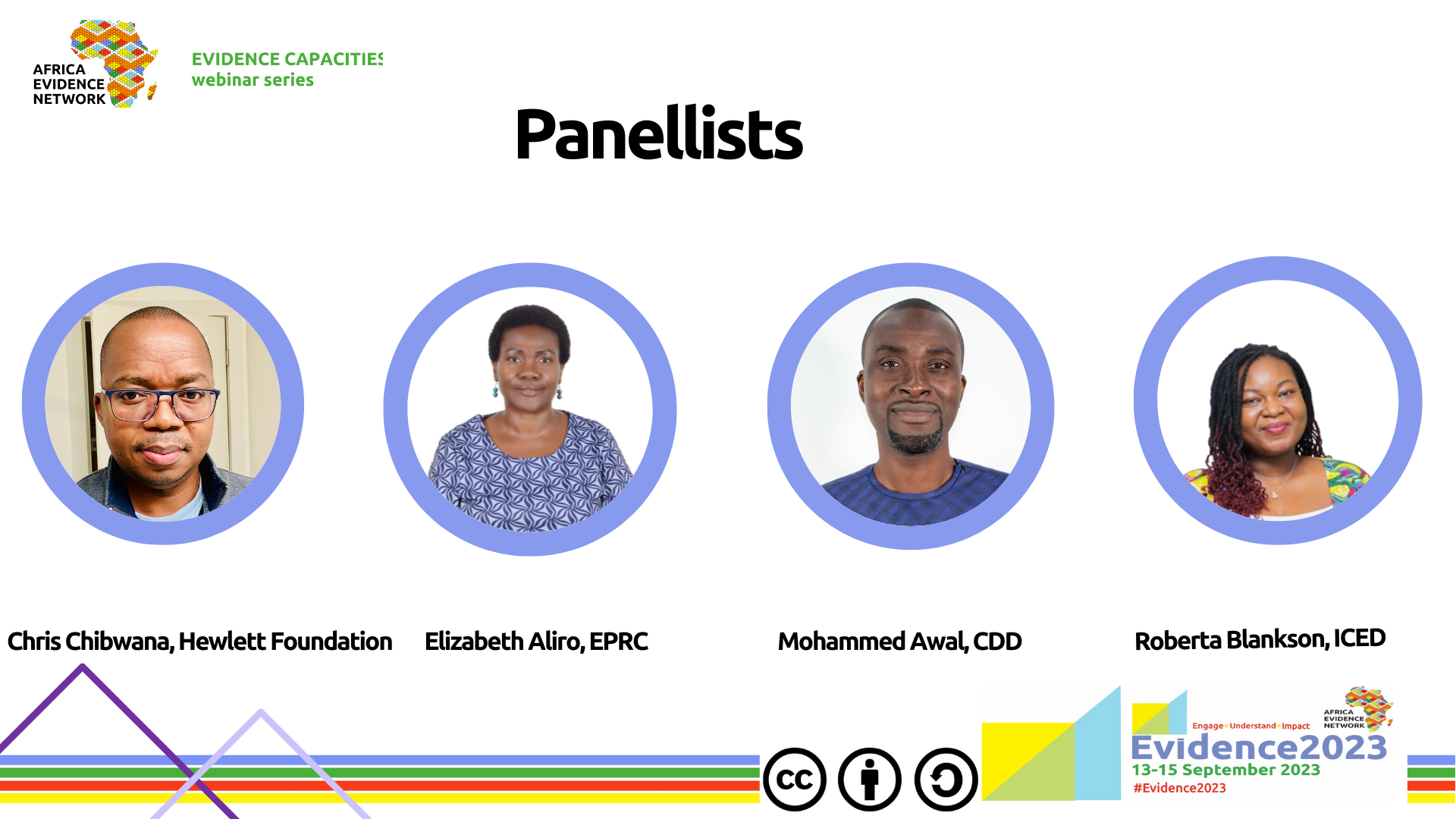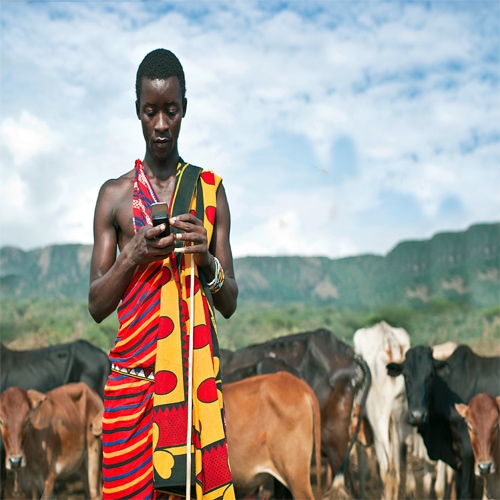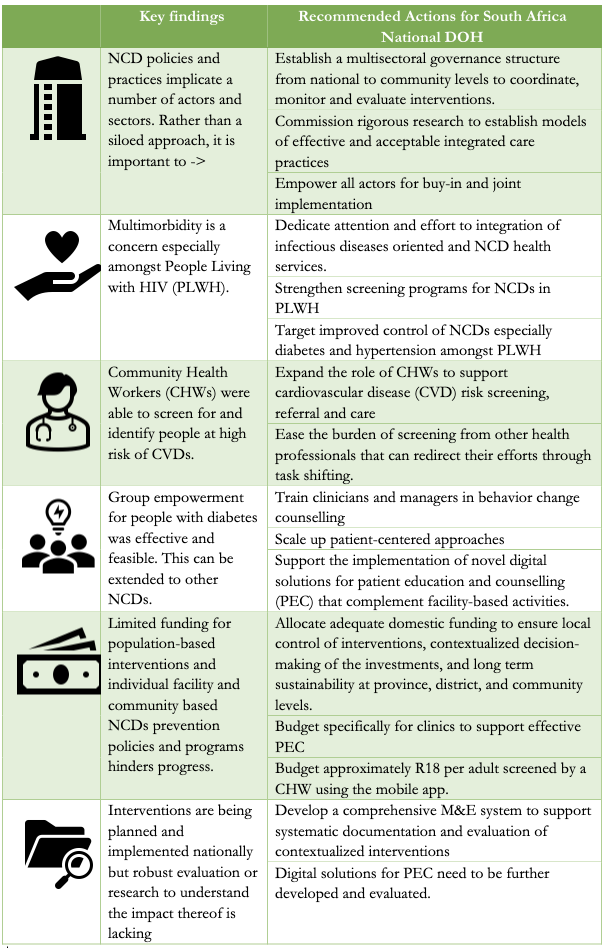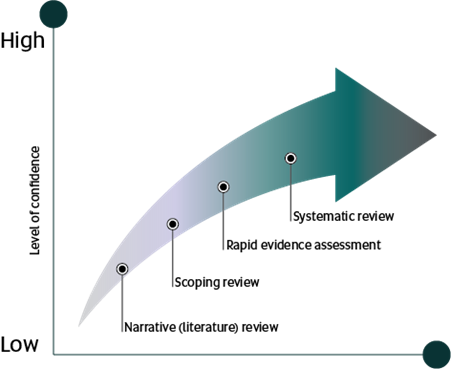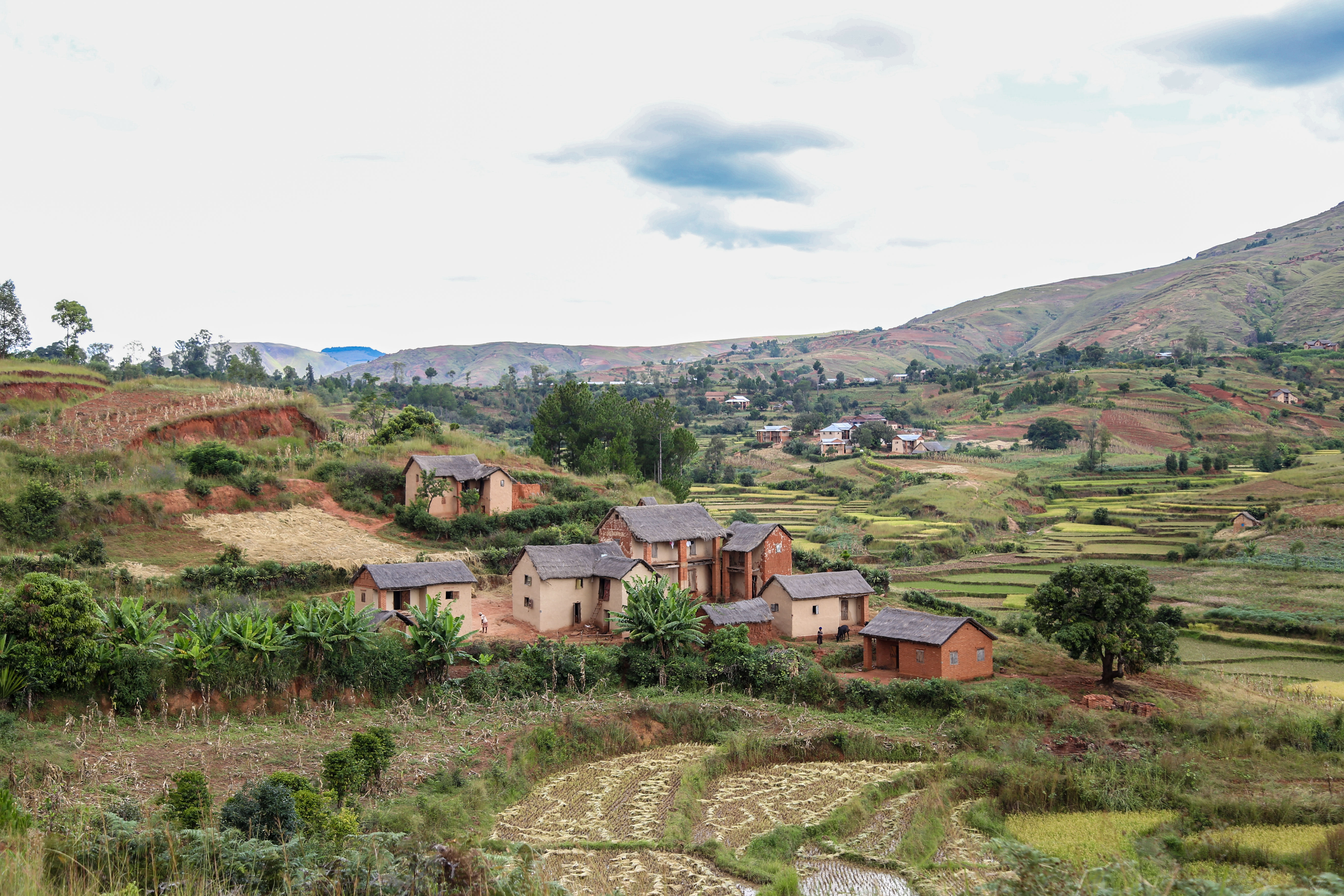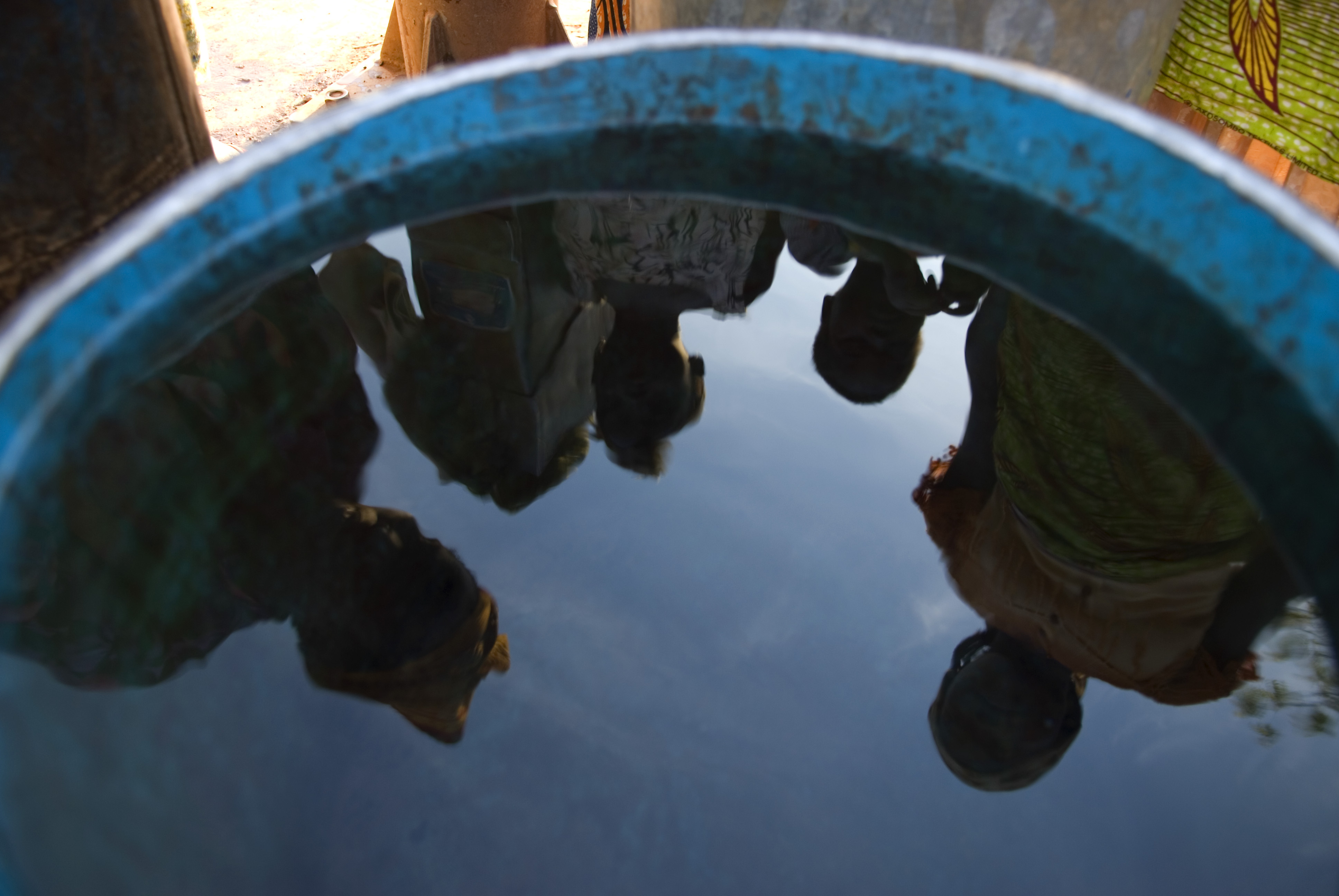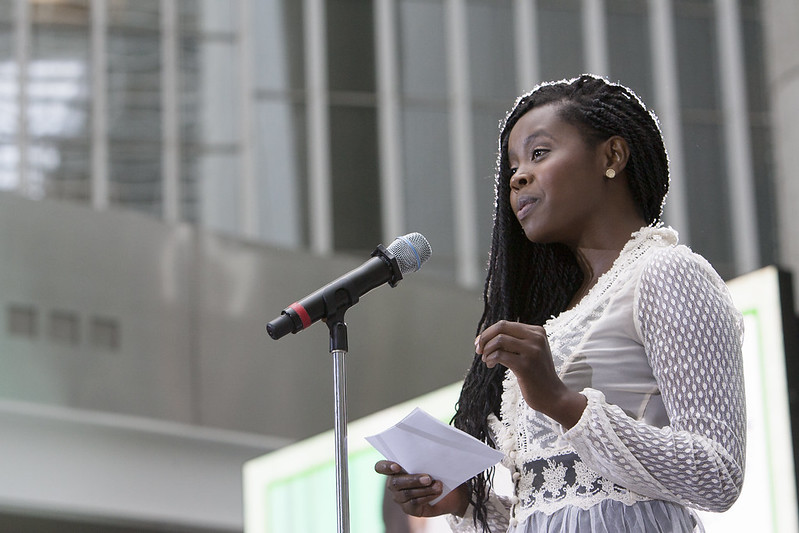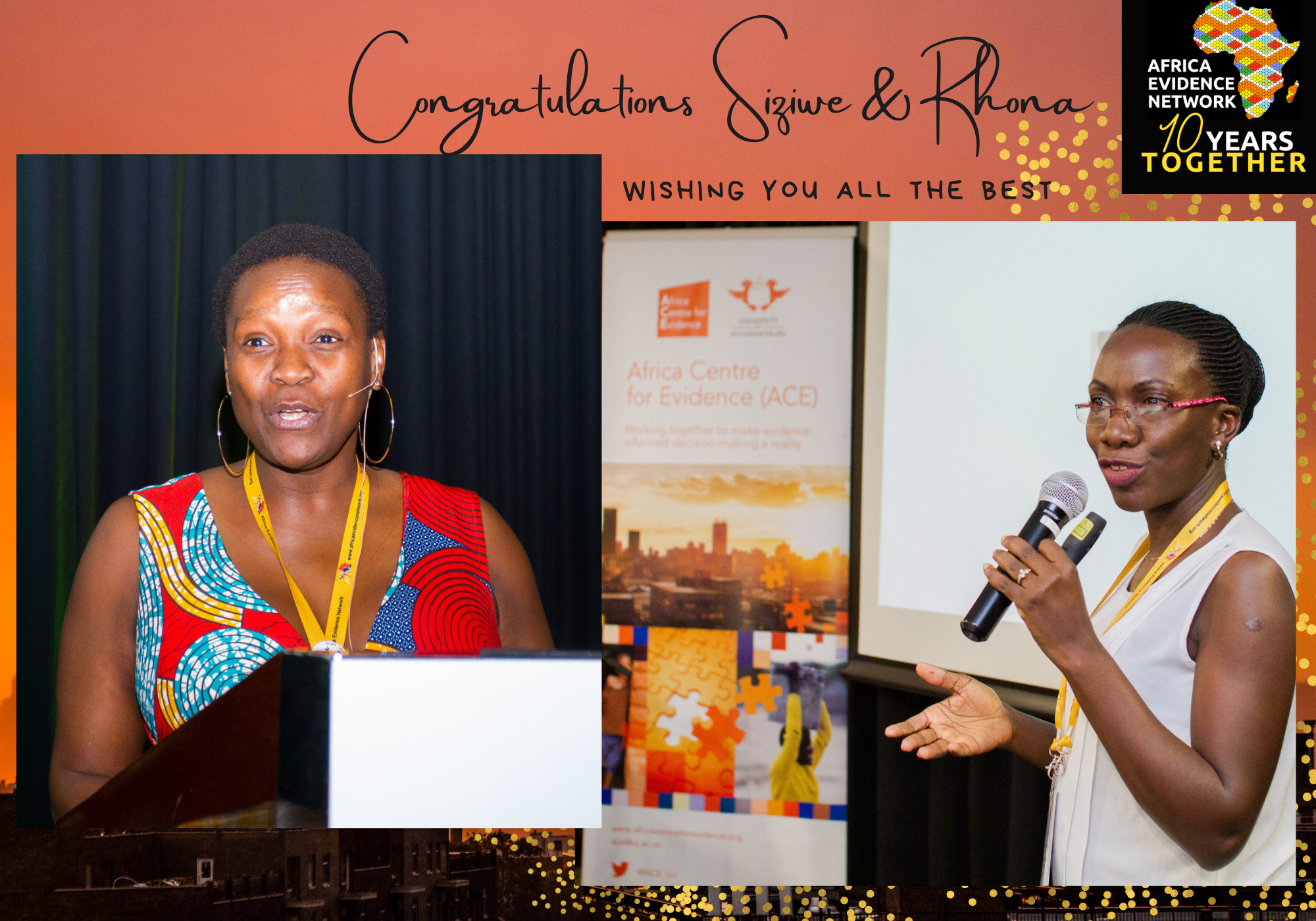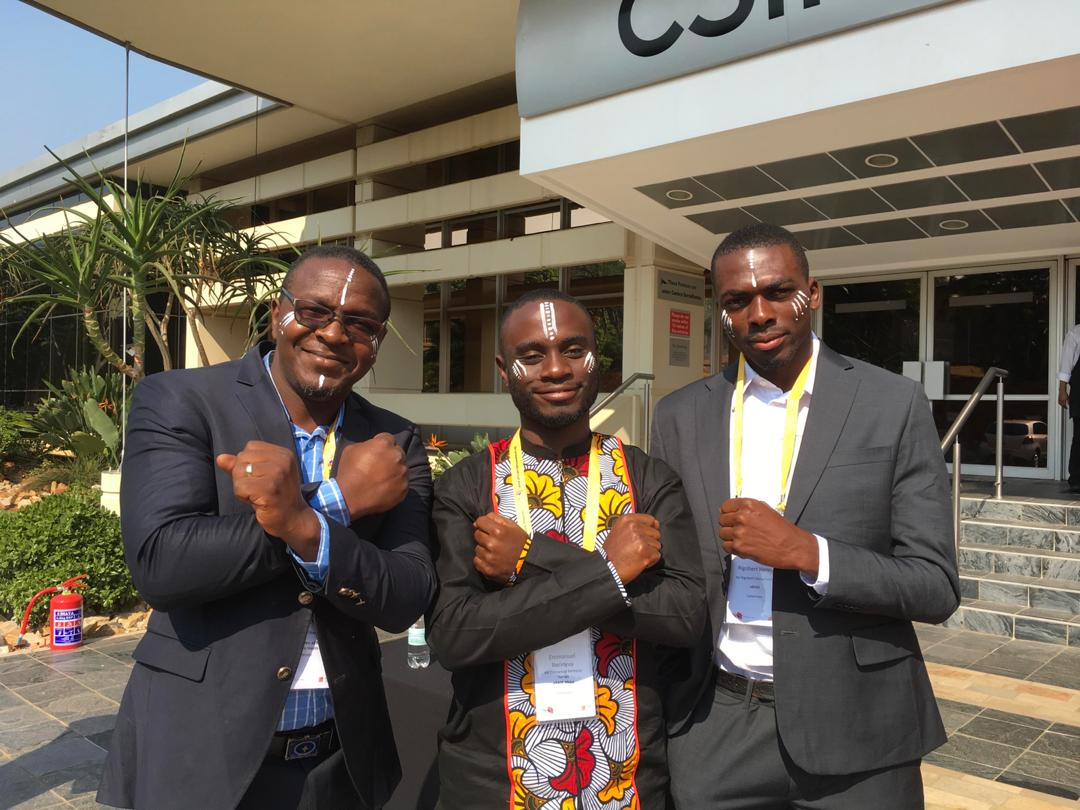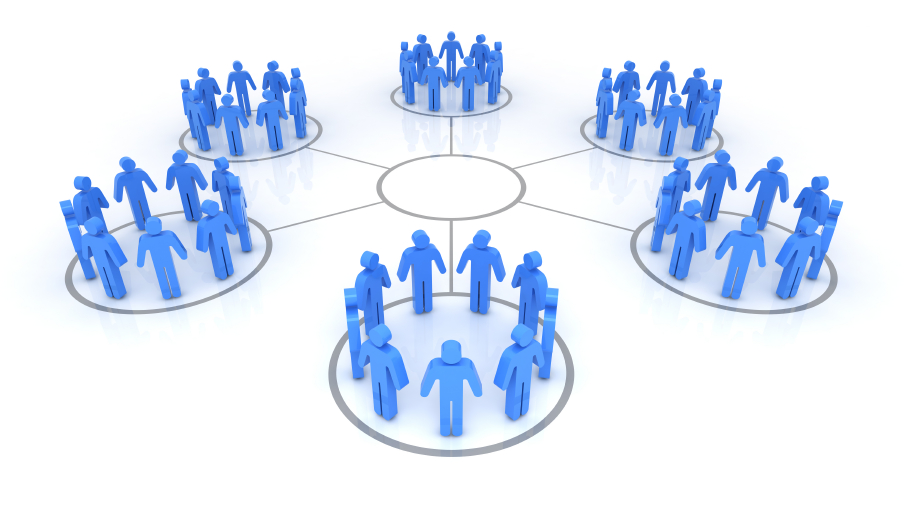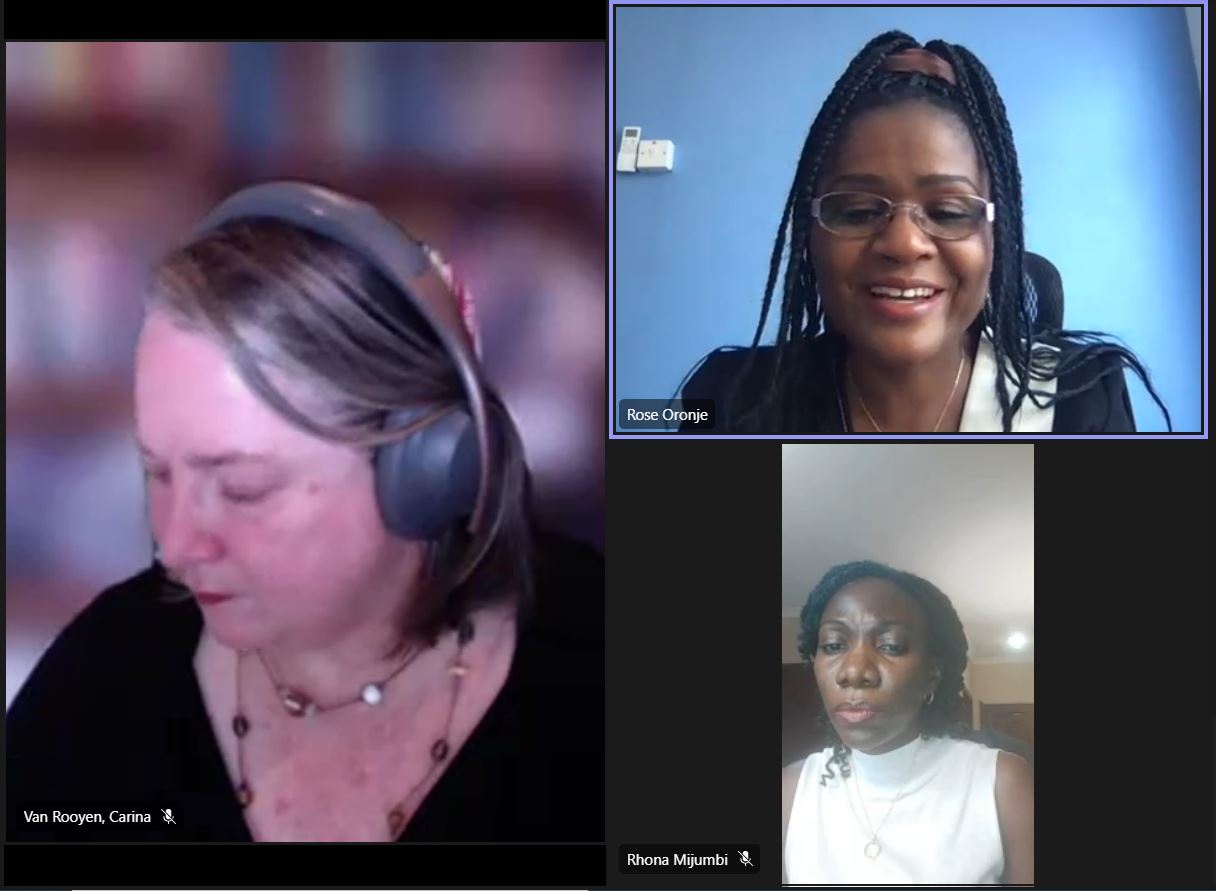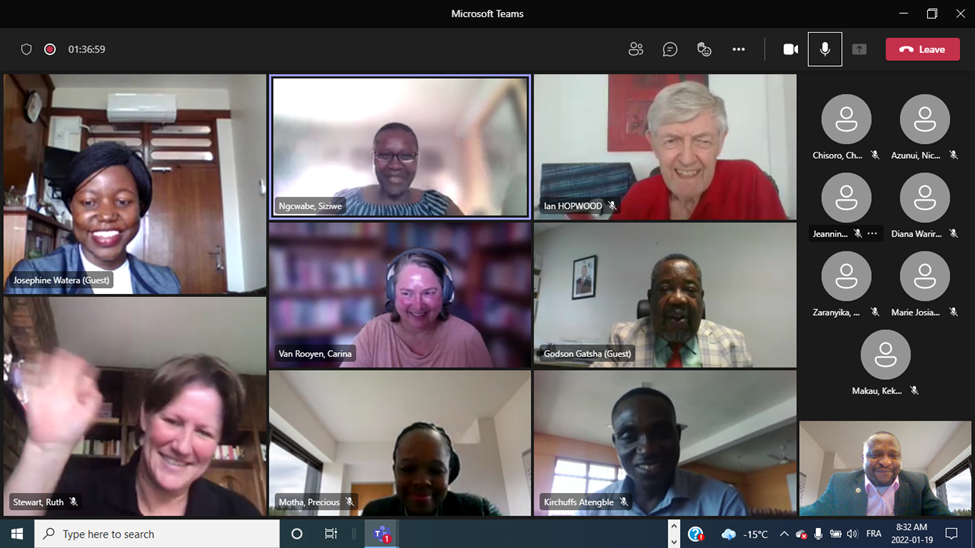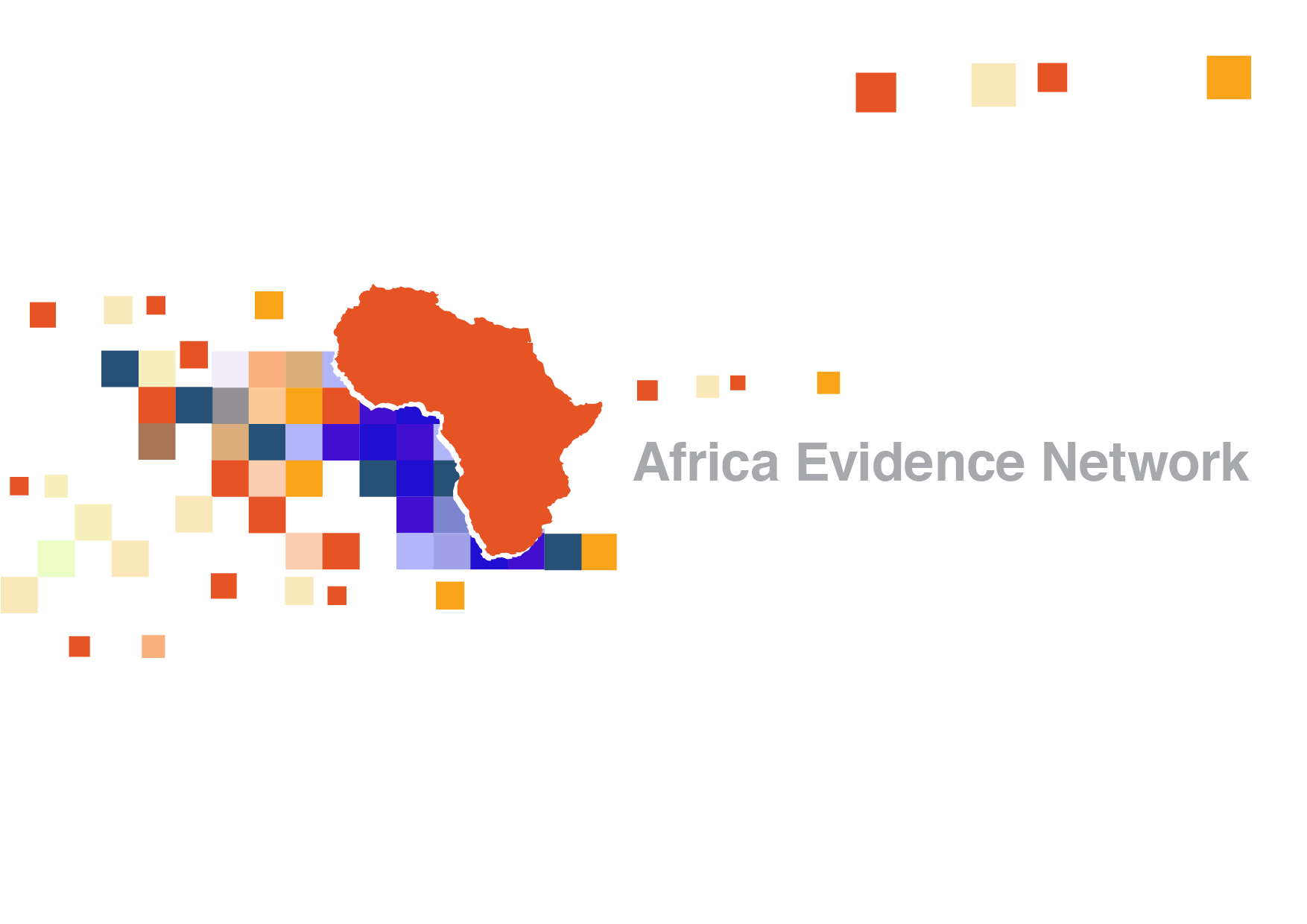
Photo credit: Getty Images
When I first encountered the world of evidence-informed decision-making (EIDM), I felt like an outsider. I assumed the space was reserved for researchers and academics—a realm far removed from my experience. To be honest, I thought EIDM was for older professionals with years of expertise. That all changed when I stumbled upon Dee Warira's story.
Dee Warira won the AELA Award in 2021 for her role as an evidence mediator, and her words struck a chord: "I believe this award shall encourage those in the communications space not to shy away from being active voices in supporting and strengthening EIDM in Africa. I also see this award as motivating individuals who are neither researchers nor policymakers, as these two groups have been more of the traditional players in the evidence ecosystem."
Dee’s story was a revelation. I saw myself in her journey and realised that EIDM isn’t limited to researchers and policymakers. Her words showed me that every contribution matters, whether you’re a communicator, community leader, or knowledge broker. It was a powerful reminder that the evidence ecosystem is made up of many roles, and everyone has a place in it.
Learning Through the AfEW24 Throwback Campaign: Every Role Matters
As the author and organiser of AfEW24 throwback Campaign, I was privileged to dive deep into individuals’ diverse pathways and roles to contribute to EIDM. Through activities like the #ThenAndNow Social Media Challenge and the Youth Spotlight Series, I discovered just how varied these roles can be.
Take Ronald Munatsi’s journey, for example. He shared how he went from being a "conference junkie" to founding ZeipNET in Zimbabwe, now a key player in advancing EIDM in the country. His transformation illustrates that passion, and dedication can open doors unexpectedly. As Ronald says: "Only together can EIDM become a reality."
Highlighting Young Leaders Driving EIDM
The AfEW24 throwback campaign also celebrated young professionals and their contributions to the evidence ecosystem. The Youth Spotlight Series showcased leaders like:
- Lesedi Senamele's story reflects a commitment to embedding EIDM into policy. His vision?
"I envision a future where EIDM is deeply embedded in the decision-making processes in Africa." - Joel Odiwuor, a researcher and knowledge translator, emphasises the importance of using evidence to foster meaningful change. For Joel, the quality of decisions depends on how well evidence is integrated into policymaking.
These young leaders prove that the future of EIDM is bright and filled with diverse voices and experiences.
Collaborating Across Roles in the EIDM Ecosystem
The AfEW24 throwback campaign gave me a front-row seat to witness how different roles work together to advance evidence-based practices. Here are a few key roles that keep the ecosystem thriving:
- Researchers and Analysts: Generate the data that inform decisions.
- Communications Officers: Translate evidence into digestible formats for policymakers and communities.
- Knowledge Brokers: Connect researchers and decision-makers to make evidence actionable.
- Community Leaders and Practitioners: Use evidence to solve practical problems at the grassroots level.
I saw how these roles uniquely contribute to bridging the gap between research and policy. For example, Velia Manyonga shared how her work with the Malawian Parliament has transformed it into a champion of evidence-informed decision-making. She reminded us:
"Evidence must always be packaged so that policymakers can easily use it."
My Takeaway: EIDM is for Everyone
If there’s one thing I’ve learned from the AfEW24 throwback campaign, EIDM is for everyone—not just academics or policy analysts. The campaign allowed us to reflect on how far we’ve come and celebrate the progress made since AfEW2019 when 64 activities across 14 countries demonstrated the growing strength of the evidence ecosystem.
As we celebrated the contributions of both young and seasoned leaders, I was reminded that the ecosystem thrives when everyone brings their skills, passion, and ideas together.
Join the Journey: The Work Continues
Though the AfEW24 throwback campaign has ended, the journey continues. I invite everyone to explore the diverse roles within EIDM and find their place in this impactful field. Your contribution matters, no matter your background or profession.
Let’s keep building this community, fostering collaboration, and celebrating the people and pathways that make evidence-informed decision-making a powerful force for change across Africa.
About the author: Elanga Andrea, hailing from Yaoundé, Cameroon, is a multilingual individual fluent in French, English, and Bulu. As the Communications Officer at Effective Basic Services (eBASE) Africa, she plays a pivotal role in improving the livelihoods of underserved populations in Cameroon, Niger, Chad, and Nigeria through innovation and best practices.
Her expertise extends beyond communication, reaching into the realm of global evidence networks. She actively participates in the Cochrane Collaboration, the Joanna Briggs Collaboration, and the Africa Evidence Network (AEN).
Elanga Andrea has been a passionate advocate for World Evidence Based Health Care Day since its inception and has contributed to the development of the AEN Capacities Community of Practice.
Acknowledgements: The author(s) is solely responsible for the content of this article, including all errors or omissions; acknowledgements do not imply endorsement of the content. The author is grateful to Charity Chisoro for her guidance in preparing and finalising this article, as well as her editorial support.
Disclaimer: The views expressed in published blog posts, as well as any errors or omissions, are the sole responsibility of the author/s and do not represent the views of the Africa Evidence Network, its secretariat, advisory or reference groups, or its funders; nor does it imply endorsement by the afore-mentioned parties.
Suggested citation: Elanga A (2024) Finding My Place in EIDM: Reflections on AfEW24 throwback campaign and the Power of Diverse Roles. Blog posting on 17 October. Available at: https://www.africaevidencenetwork.org/en/learning-space/article/370/
